
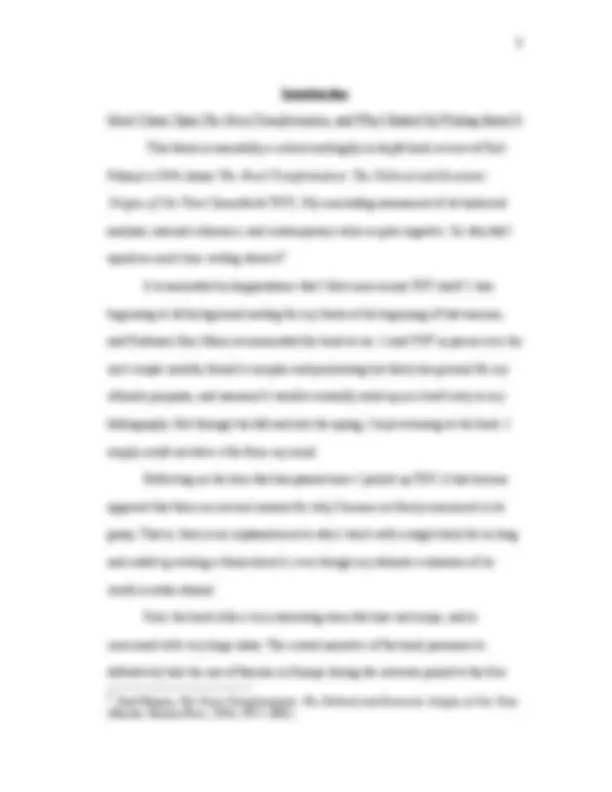
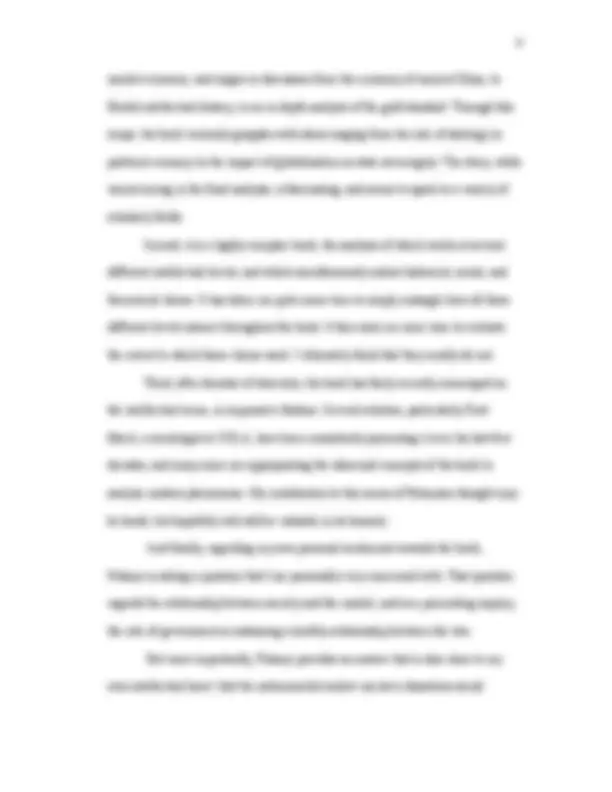
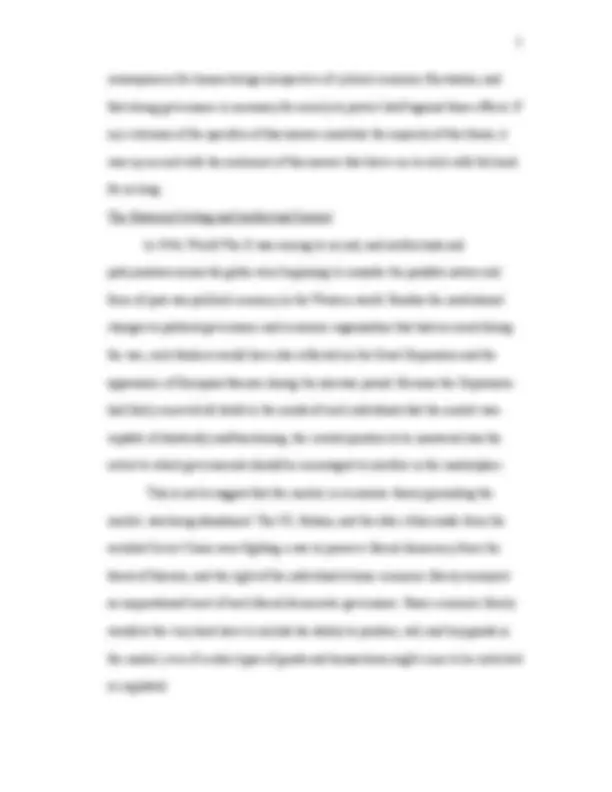
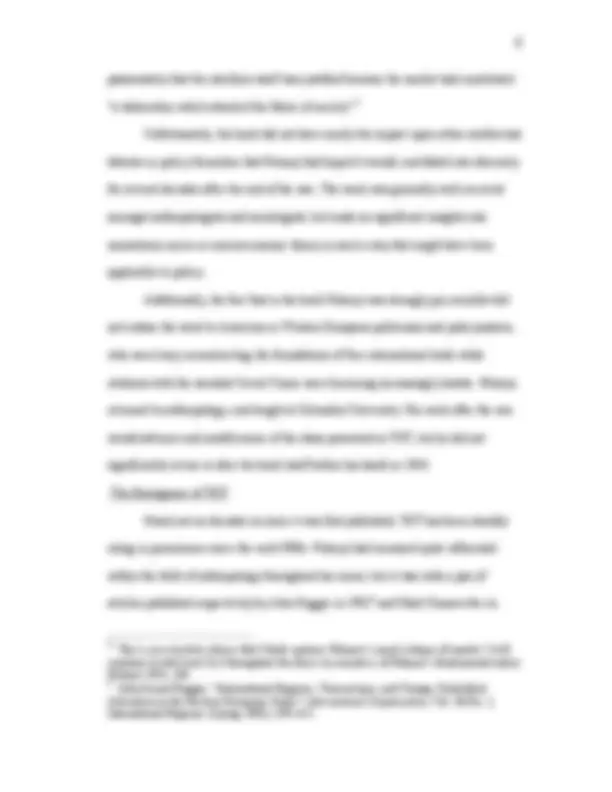
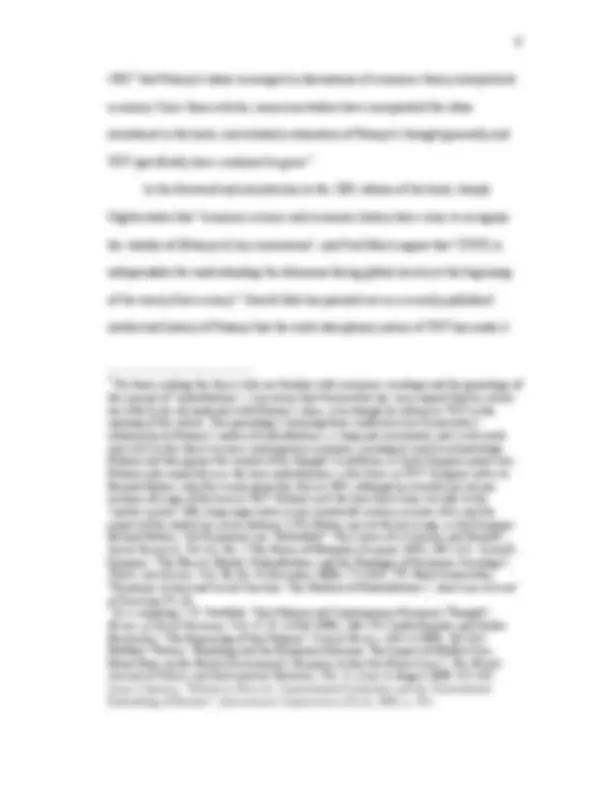
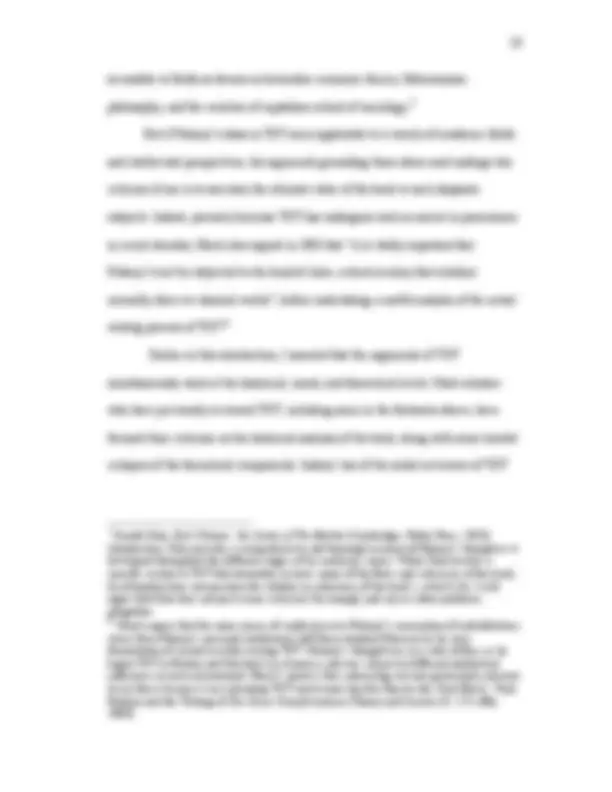
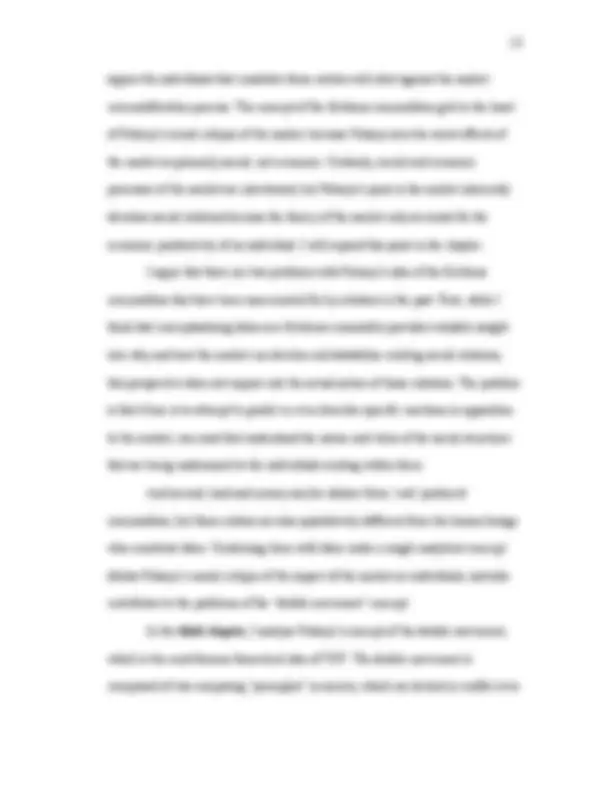
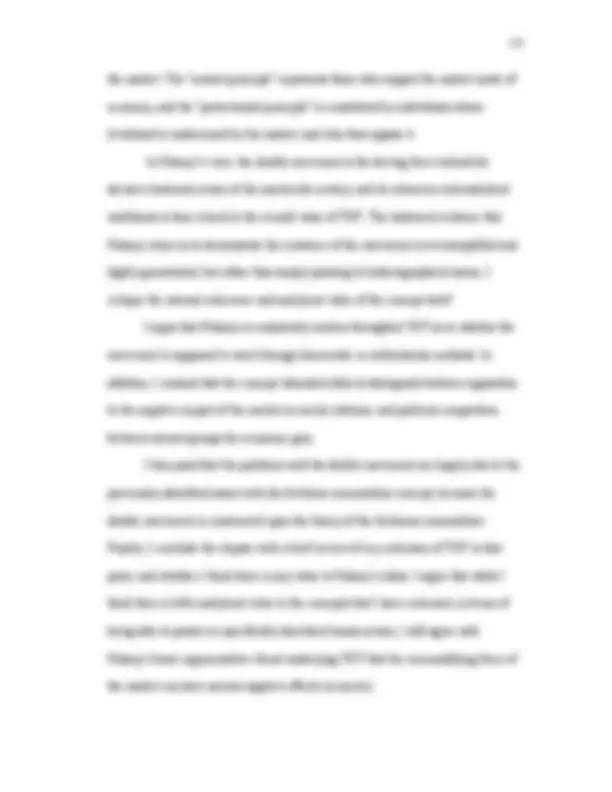
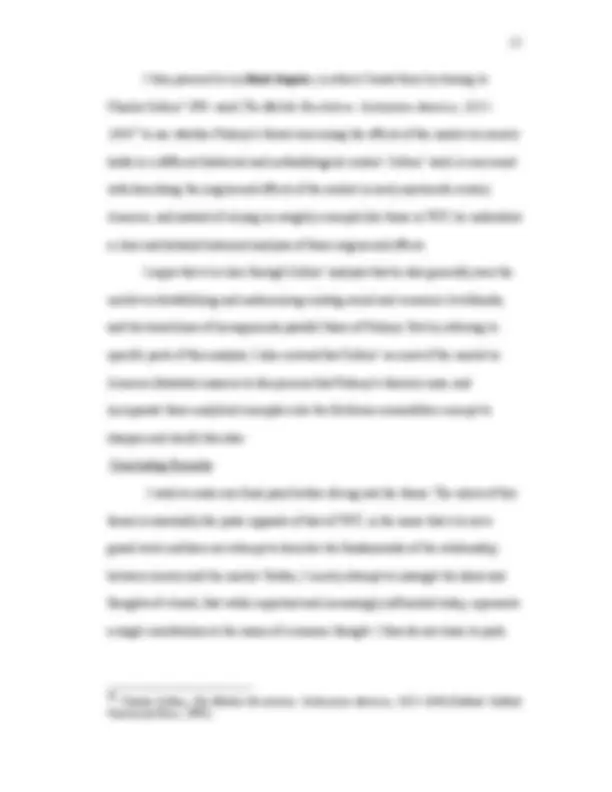
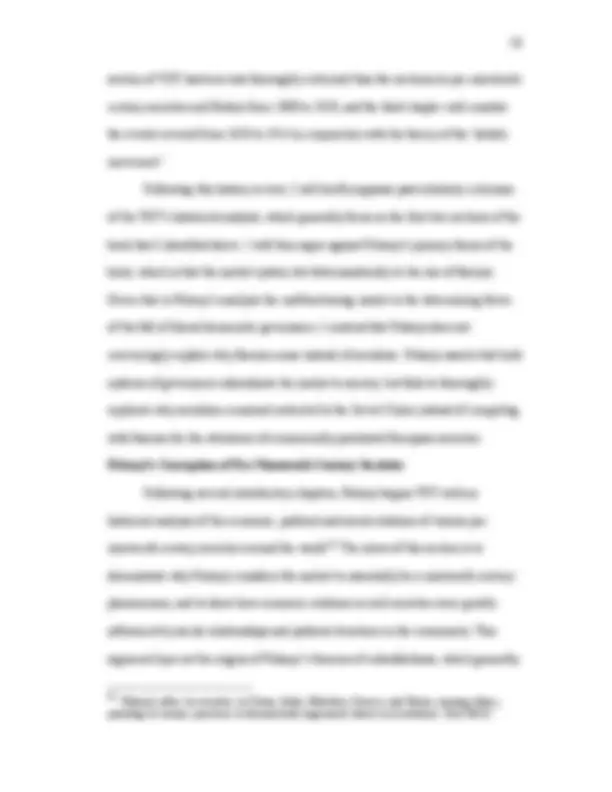
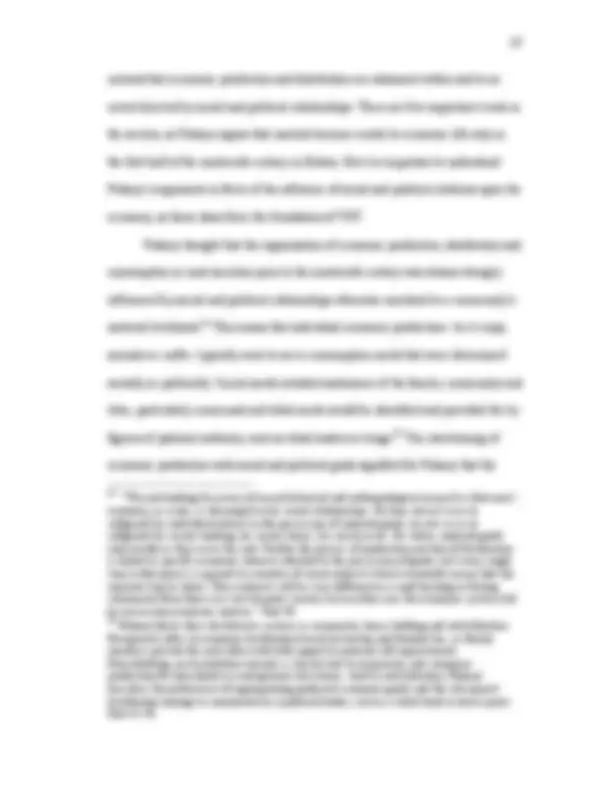
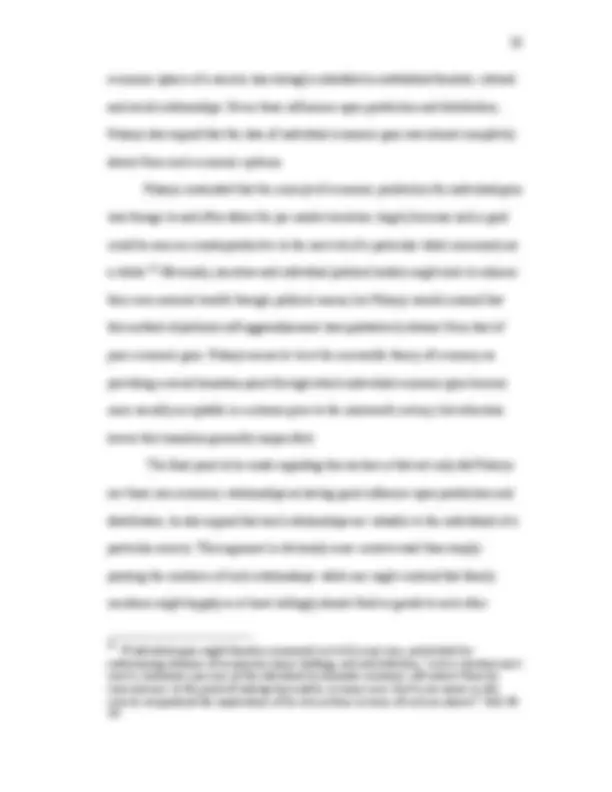
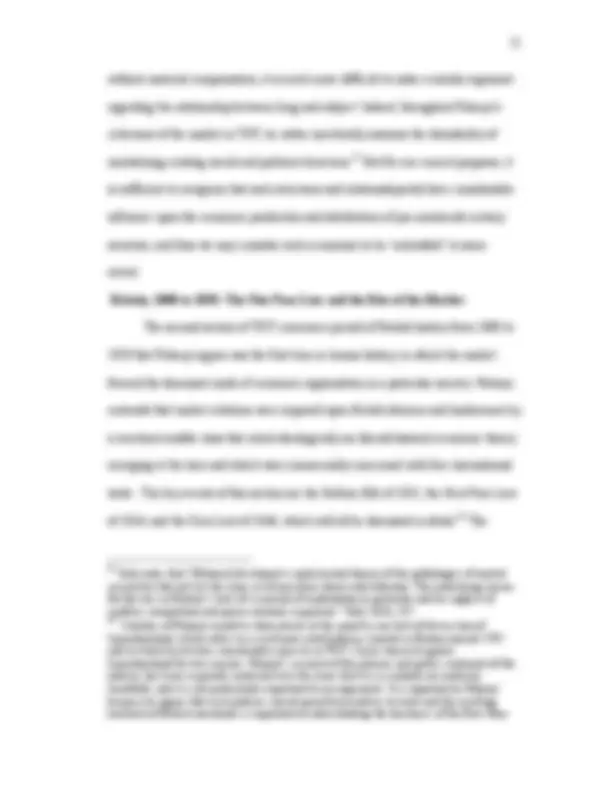
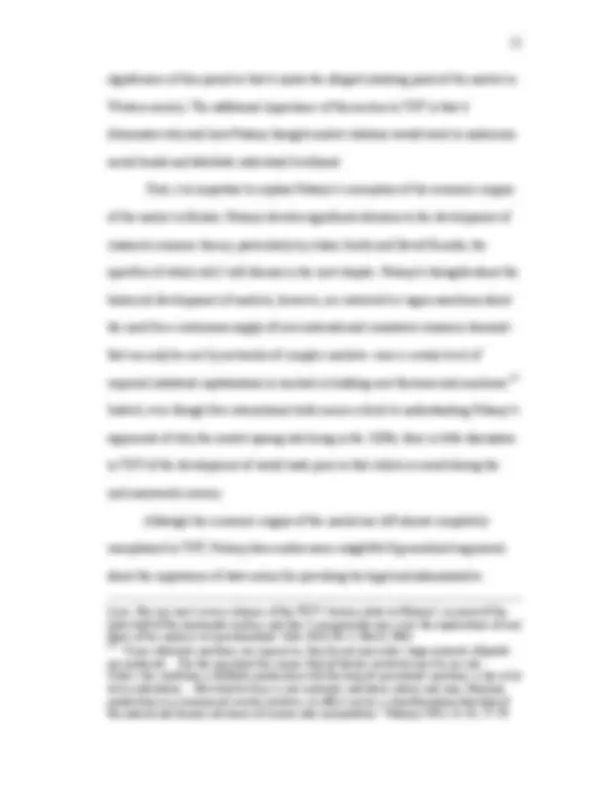
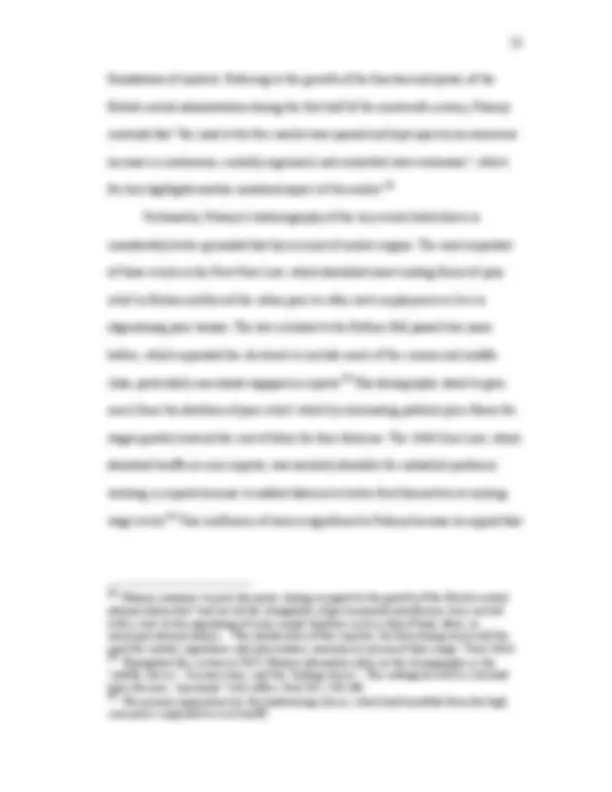
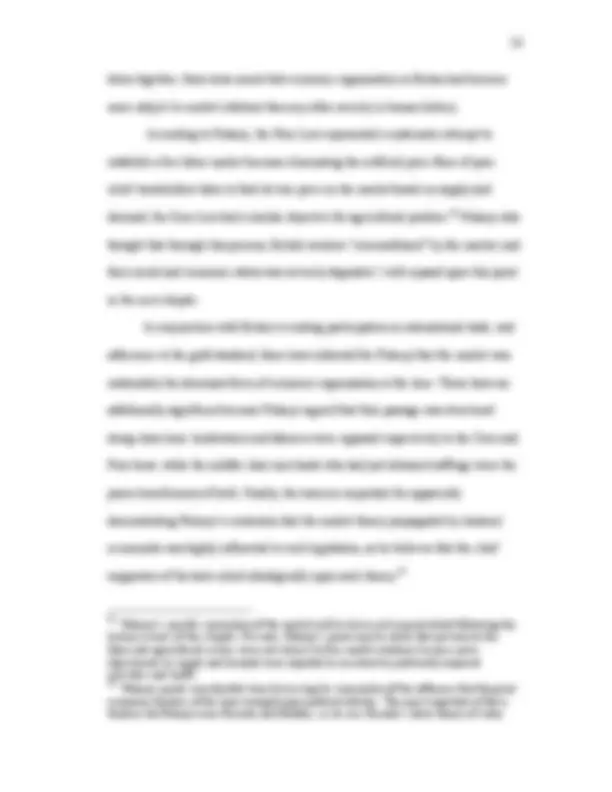
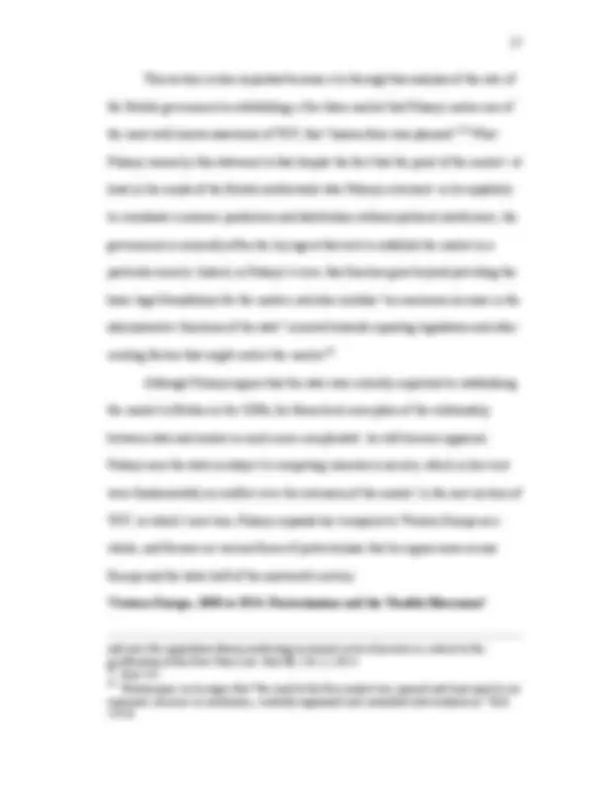
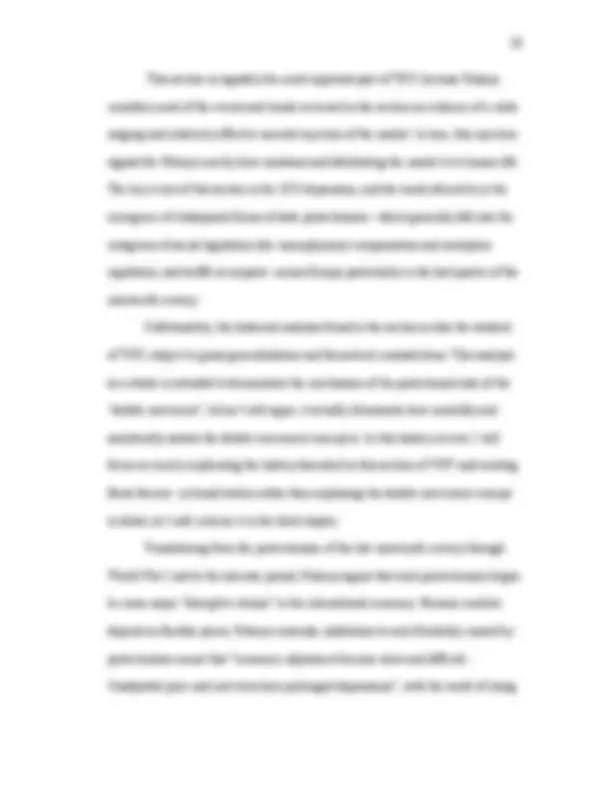
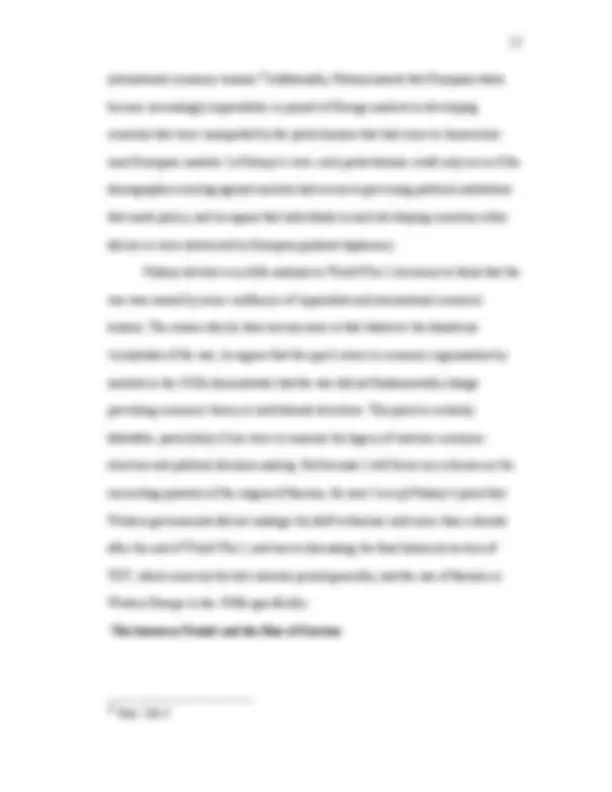
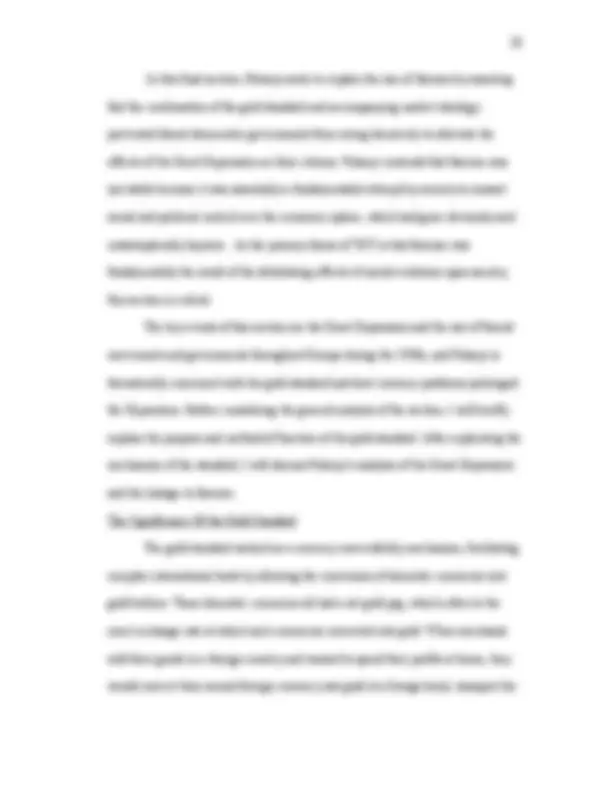
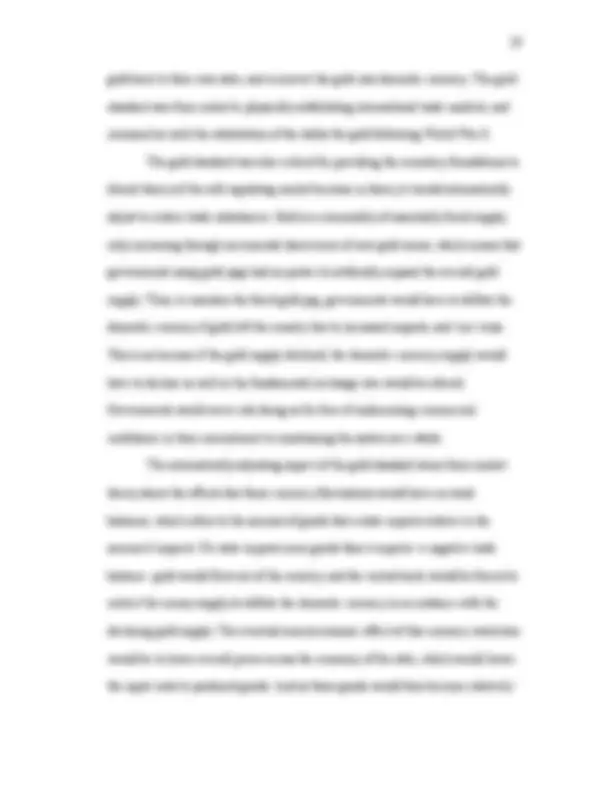
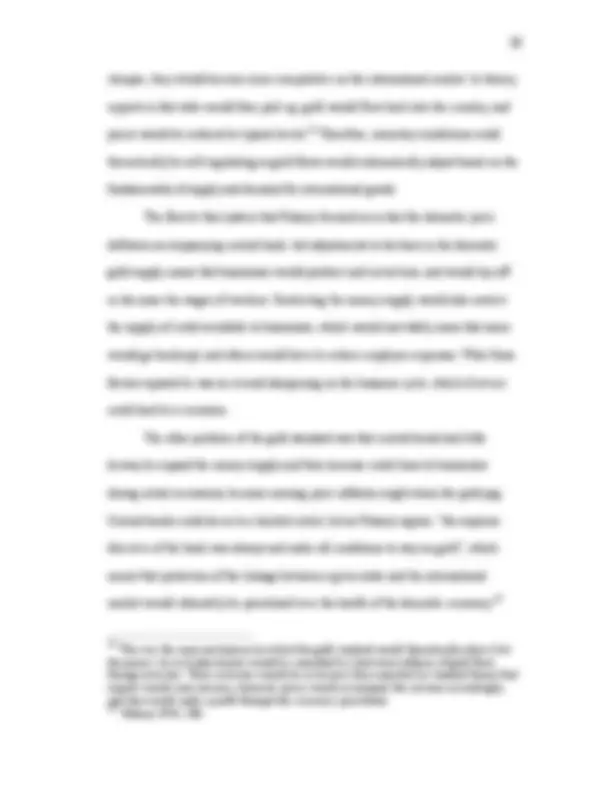
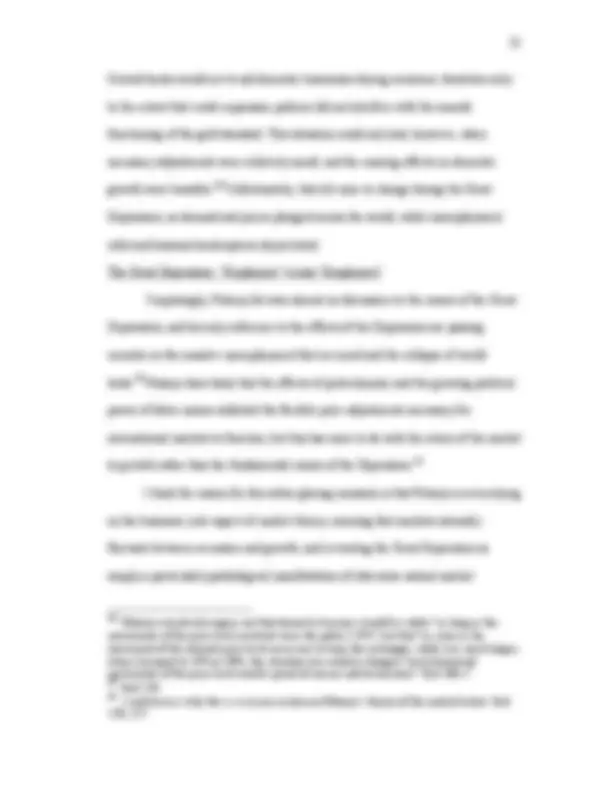
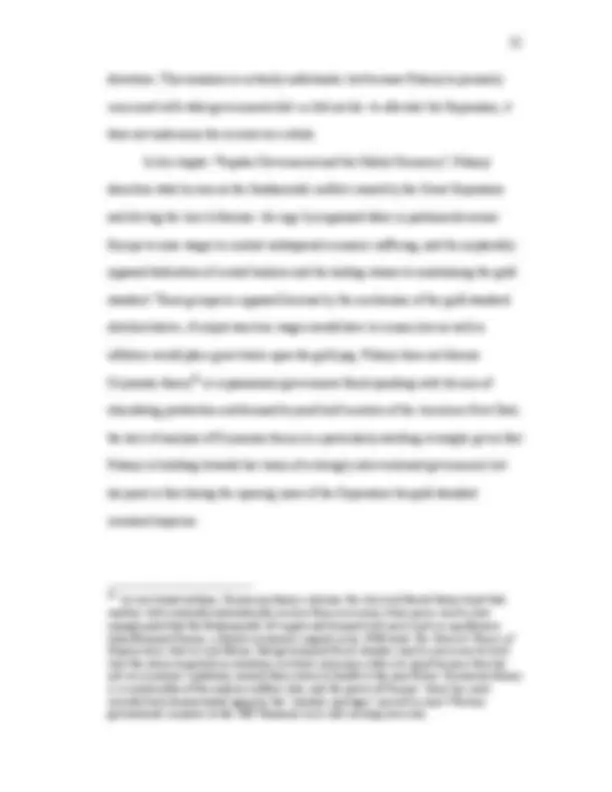
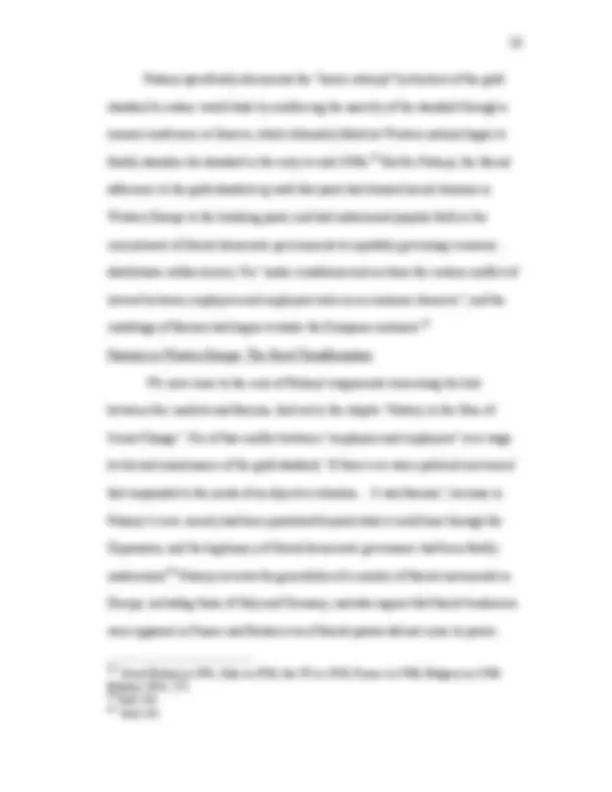
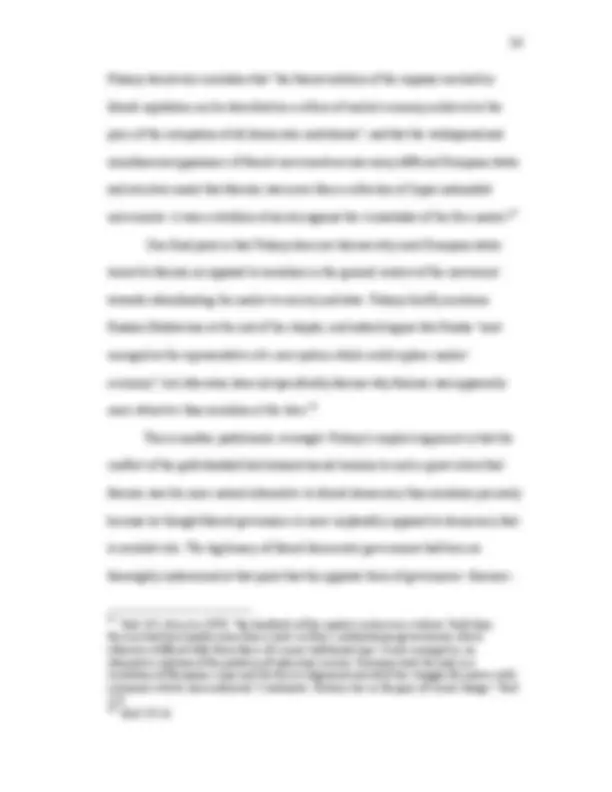
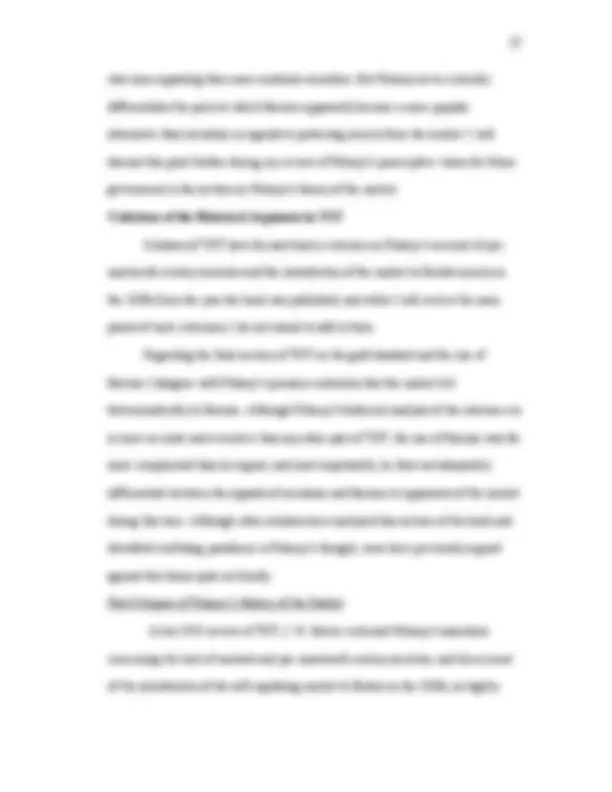
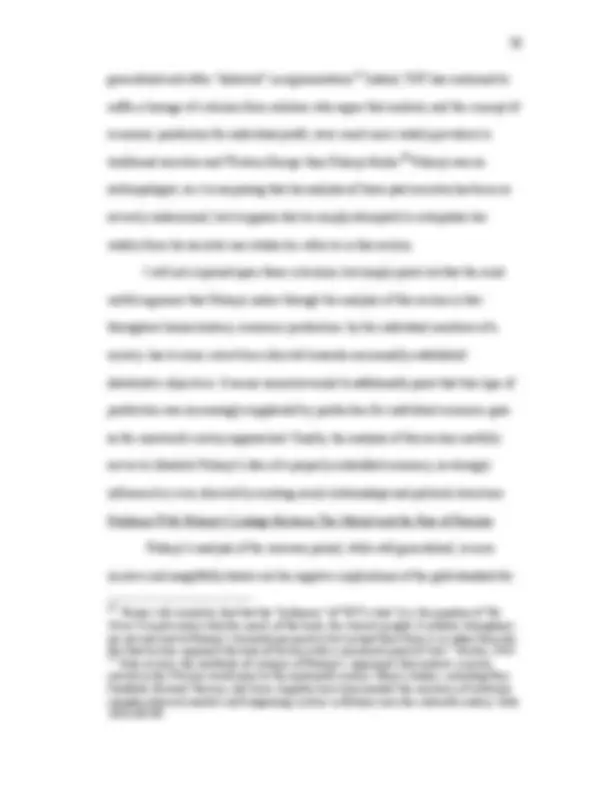
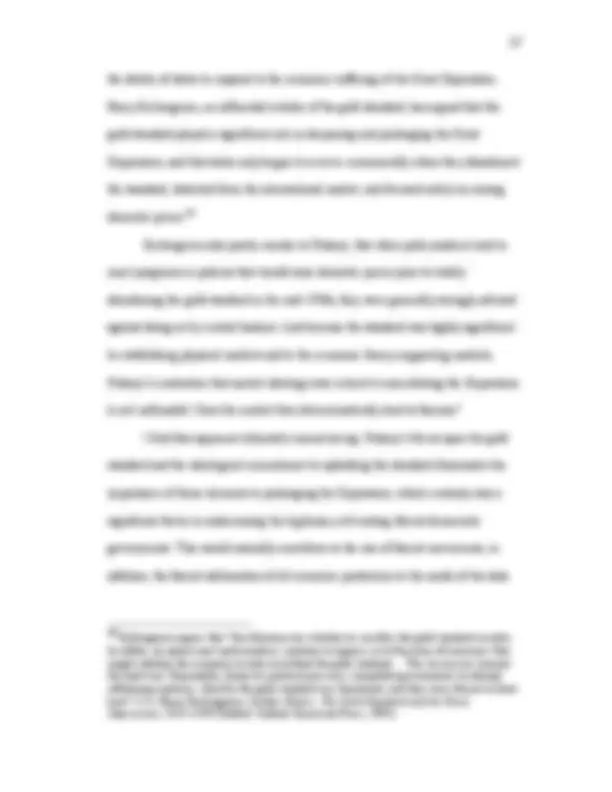
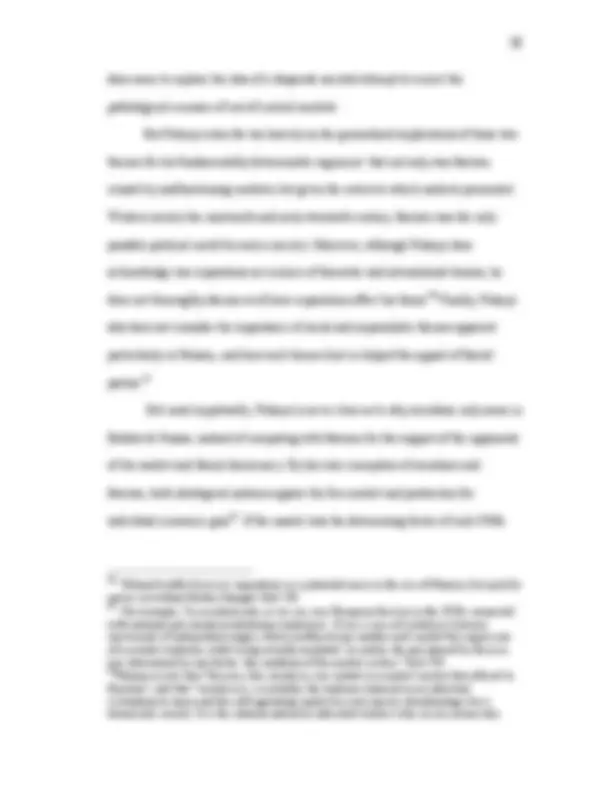
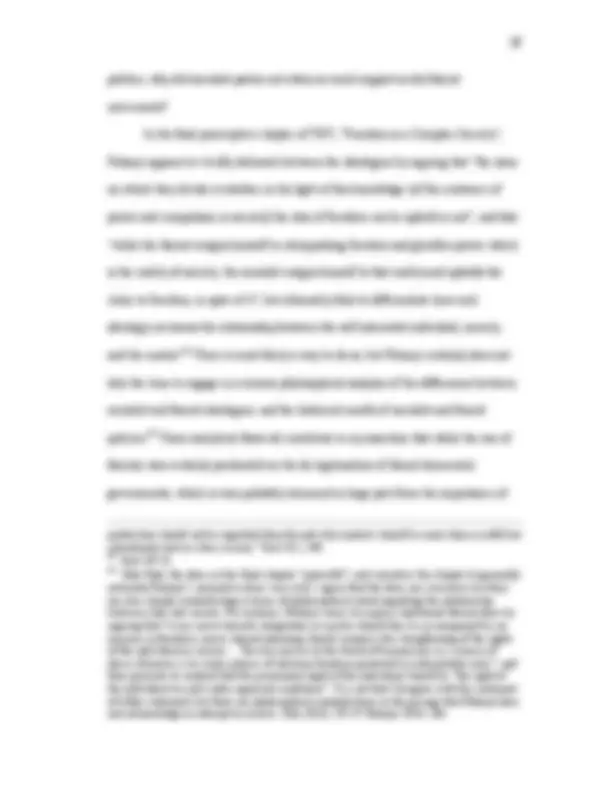
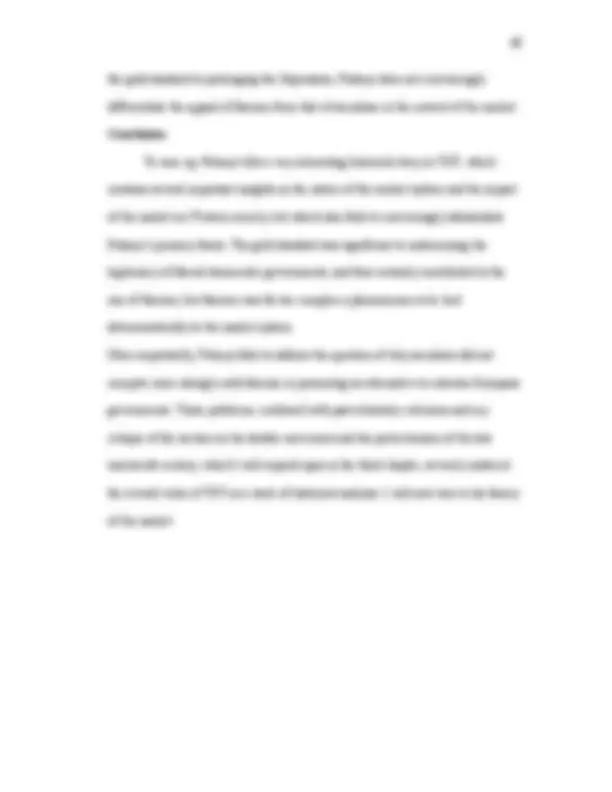
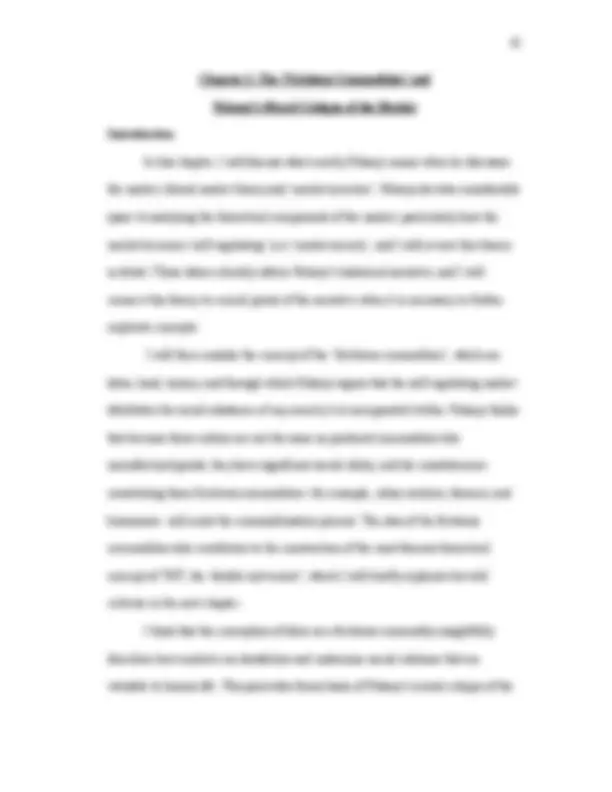
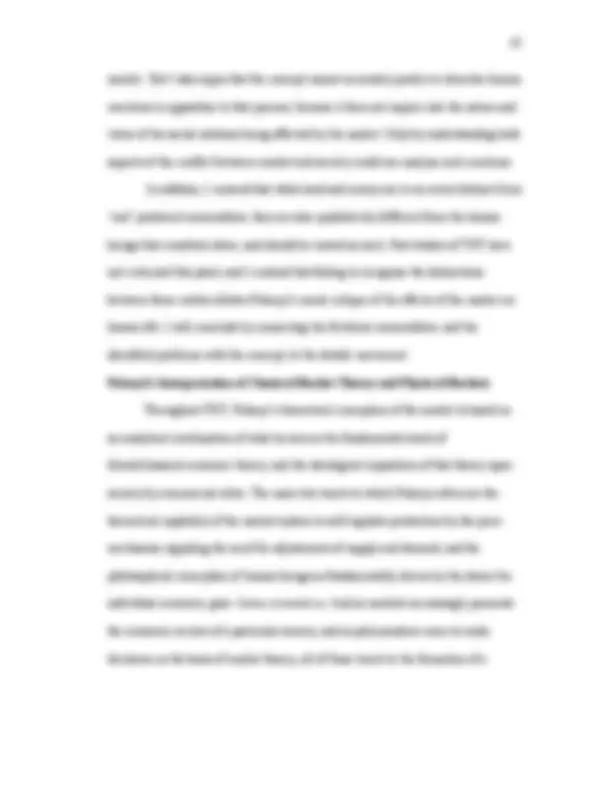
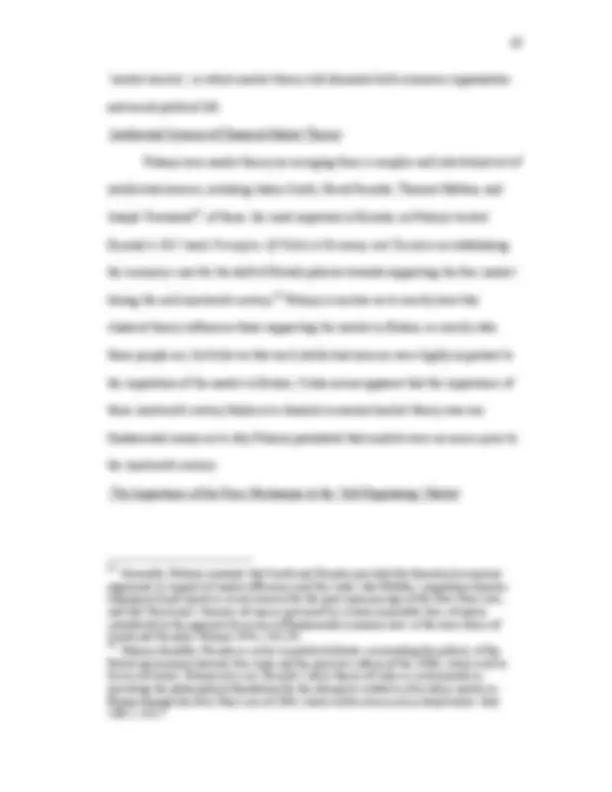
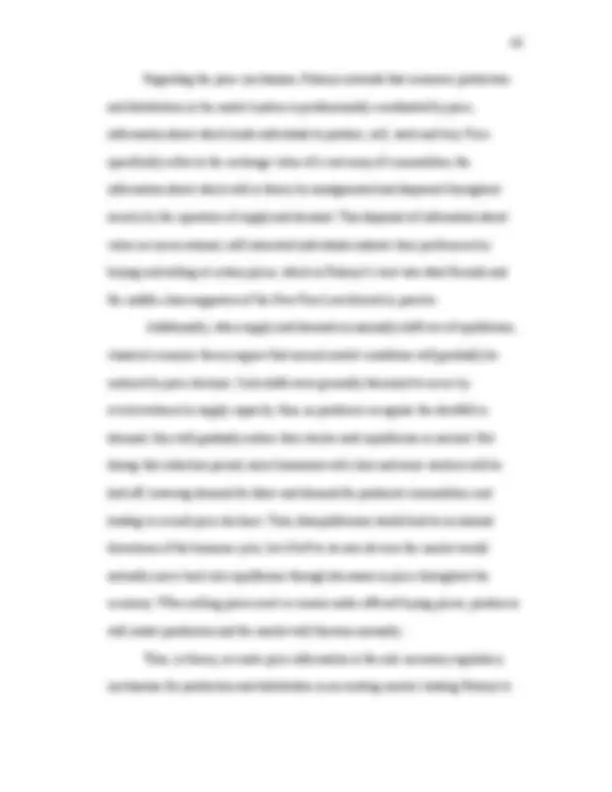
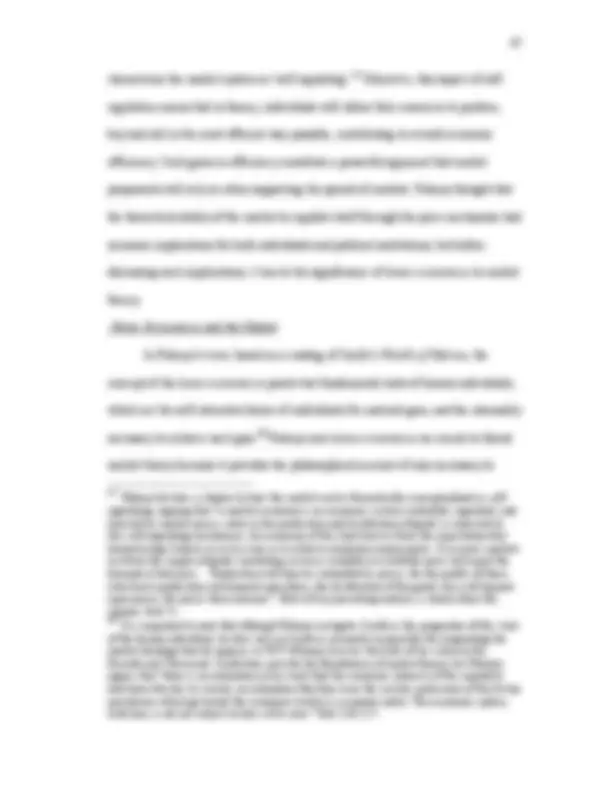
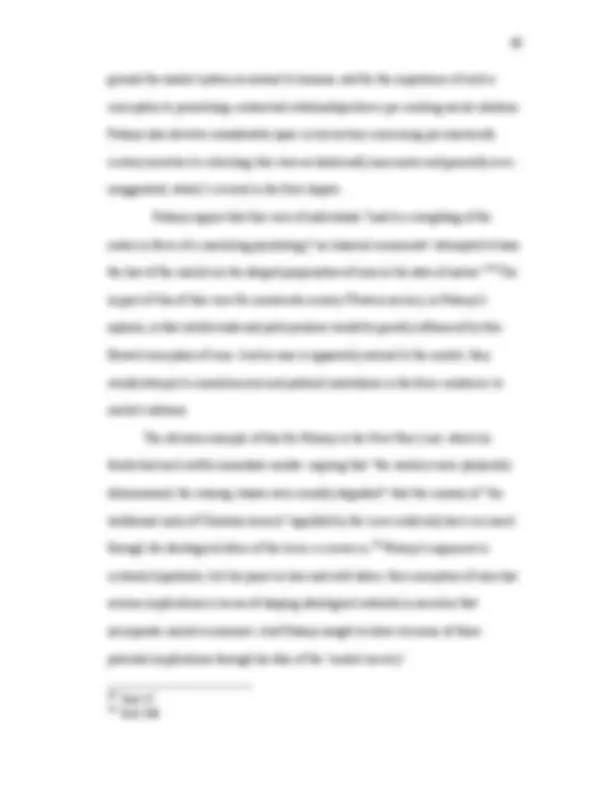
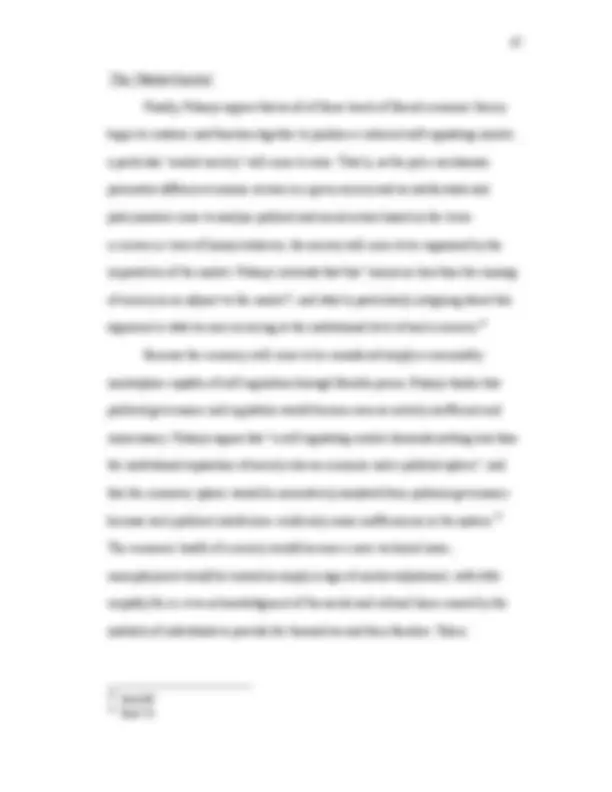
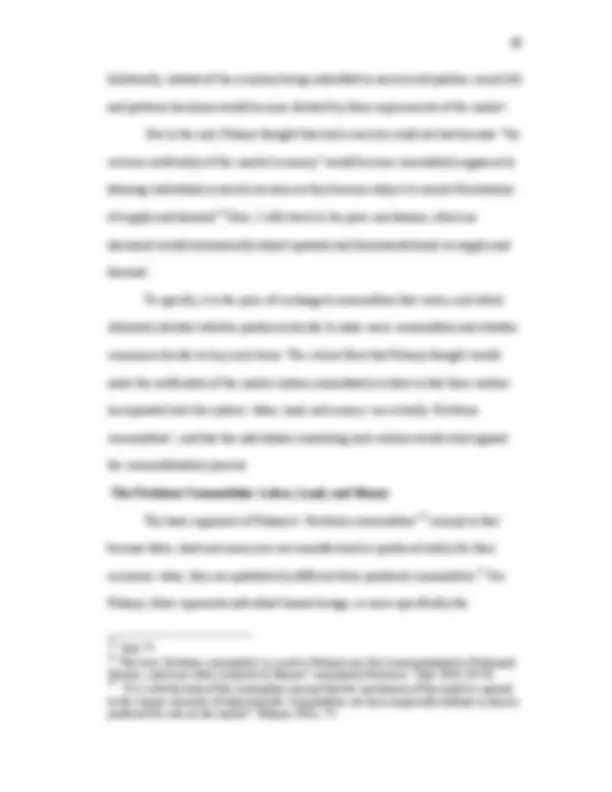
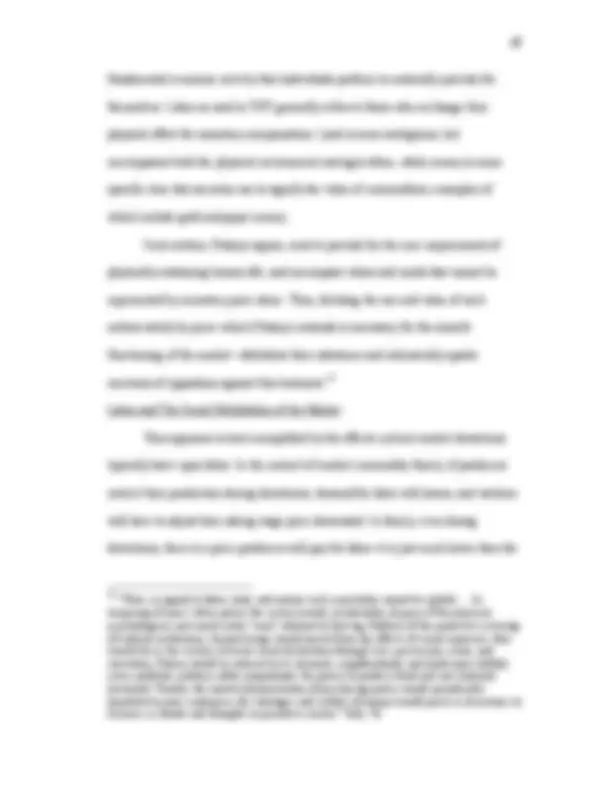
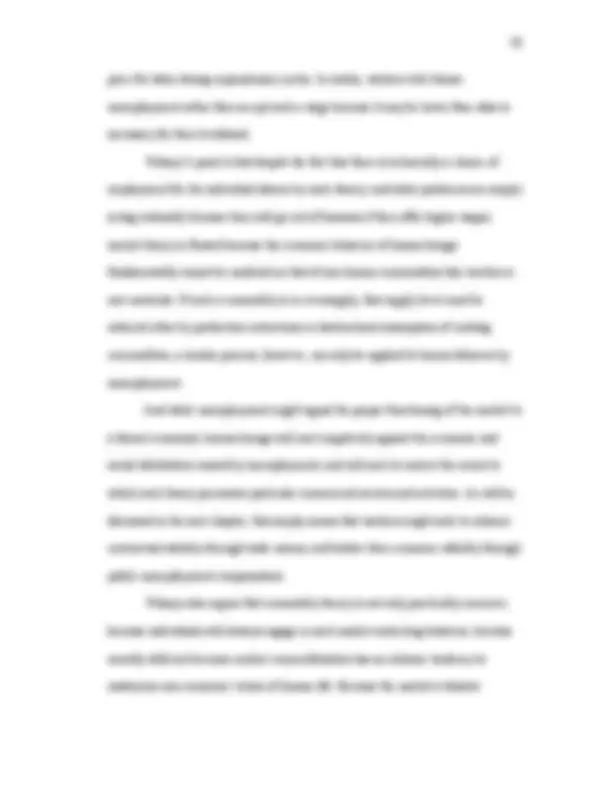
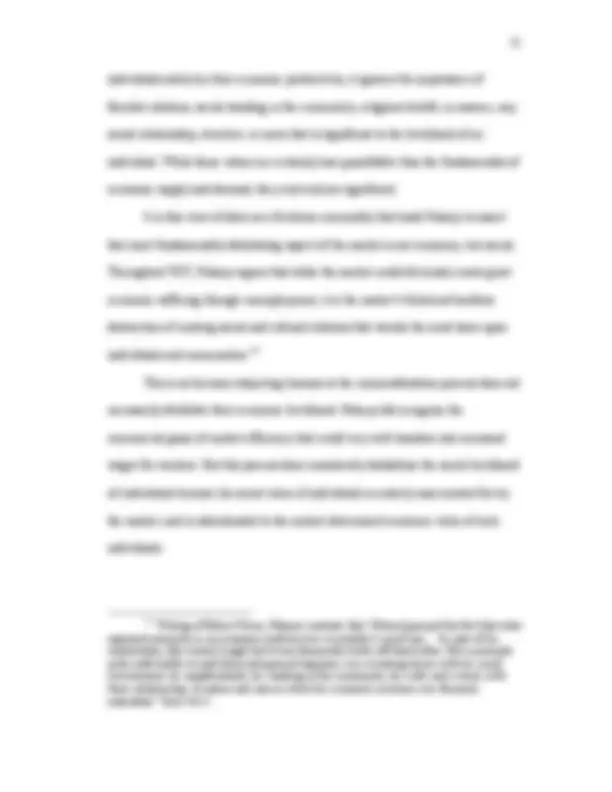
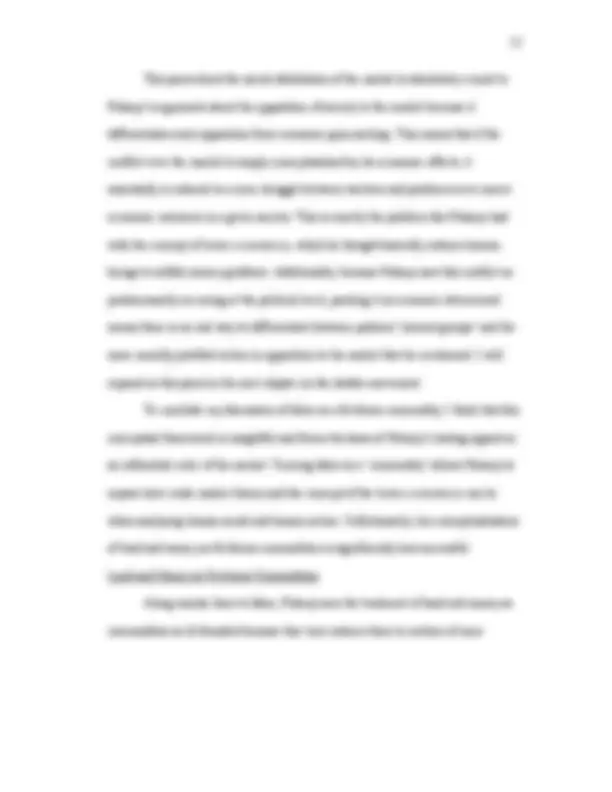
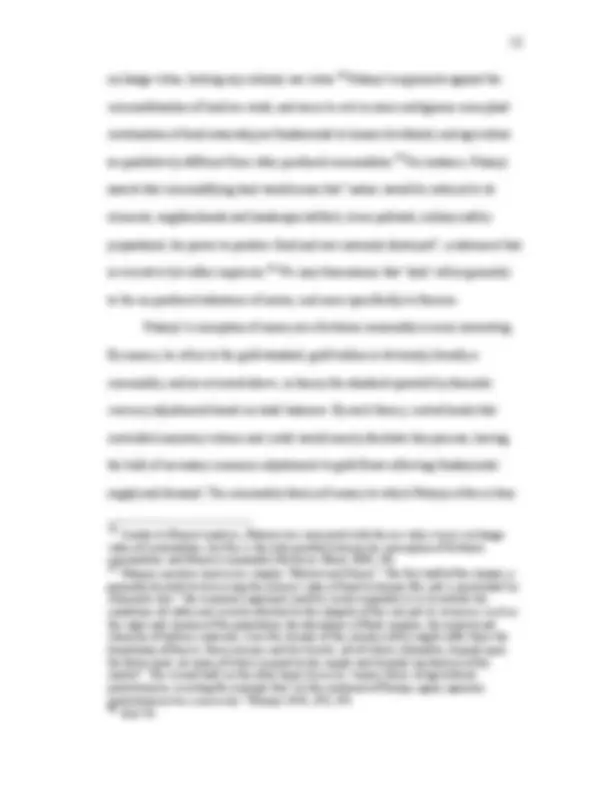
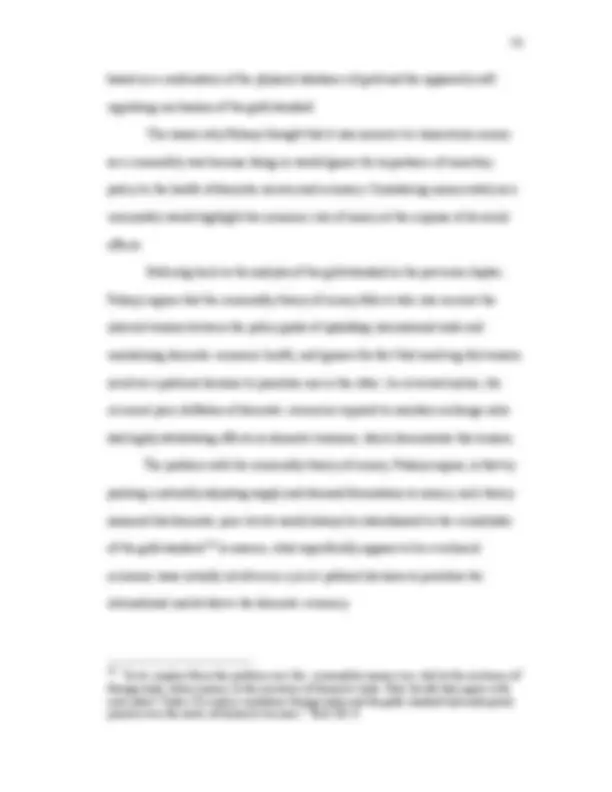
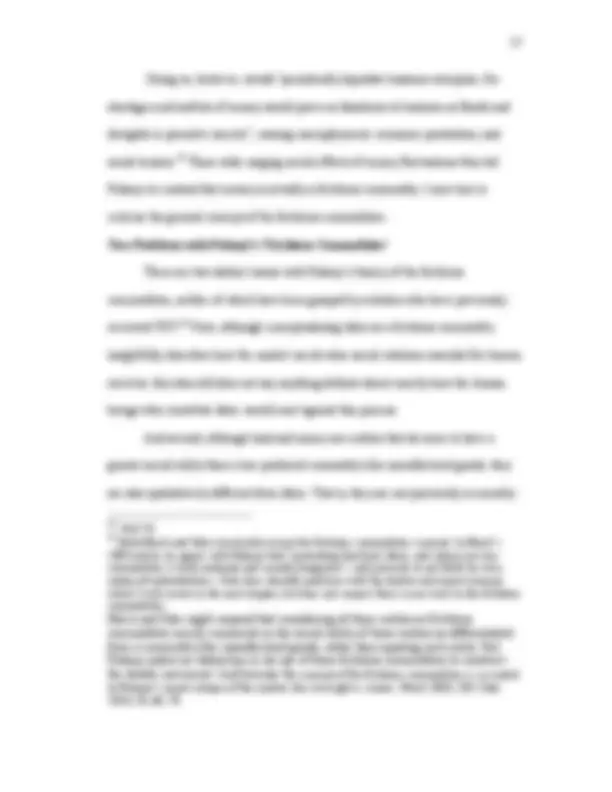
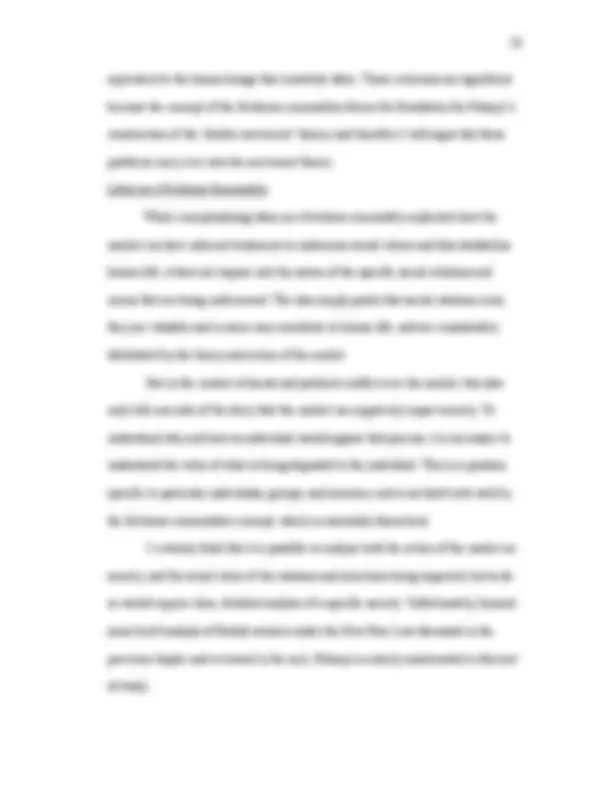
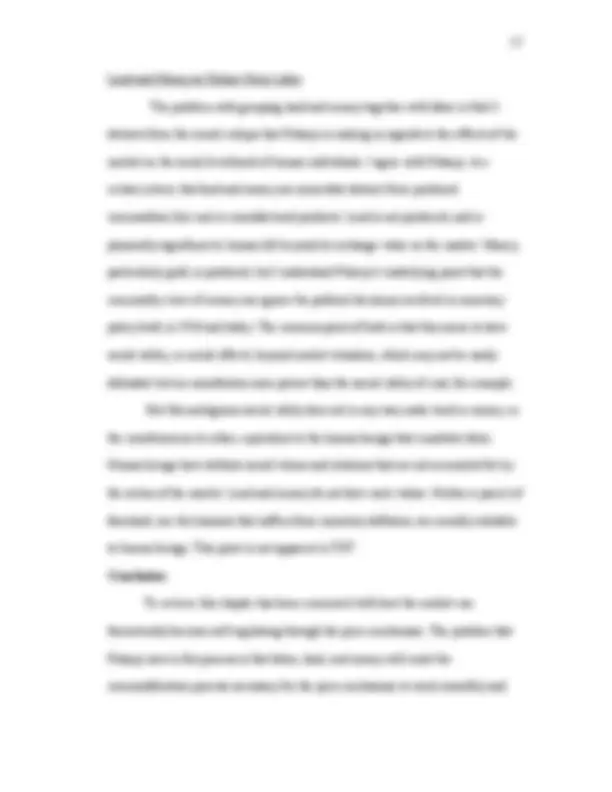
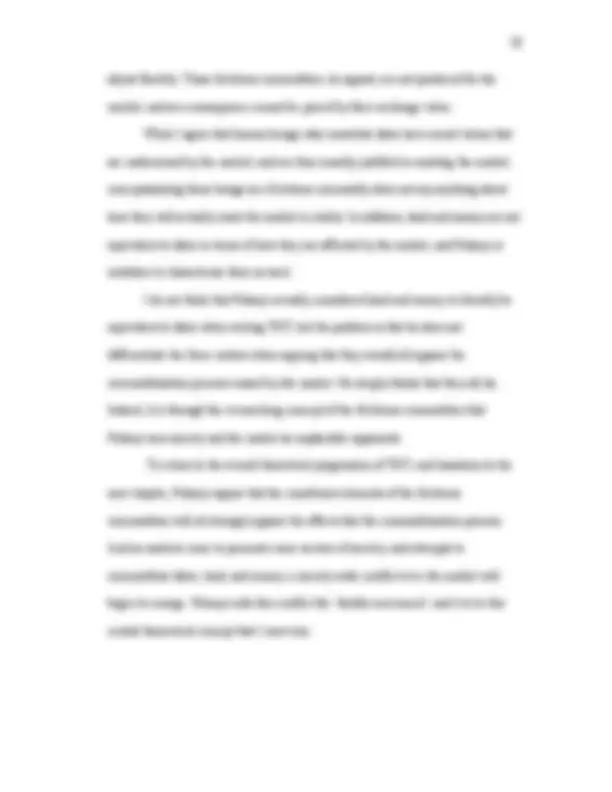
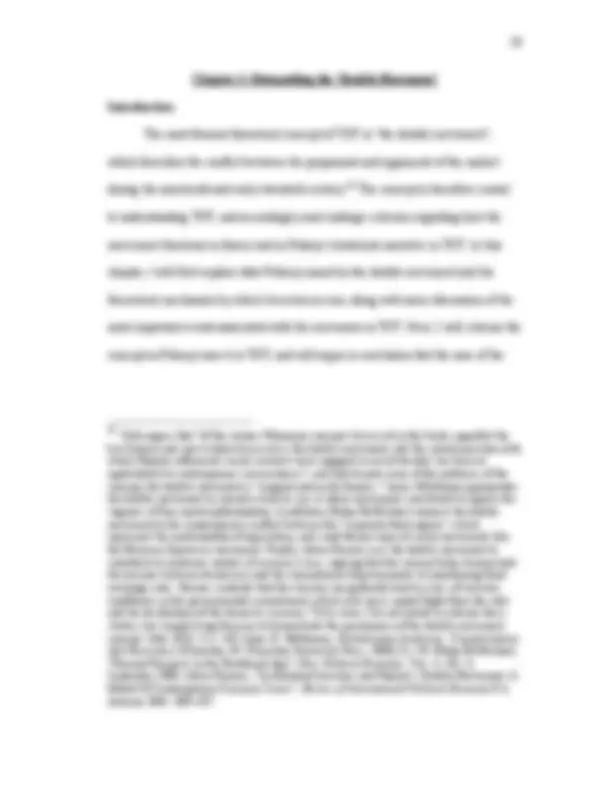
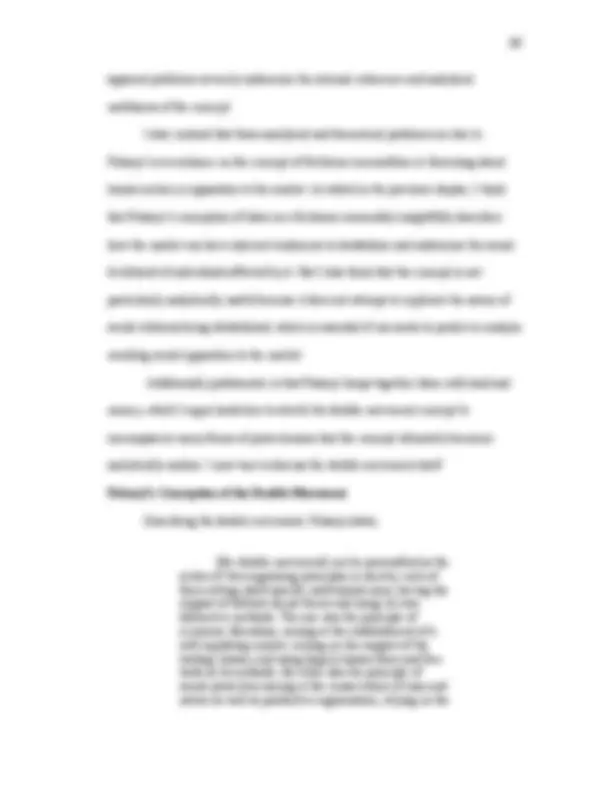
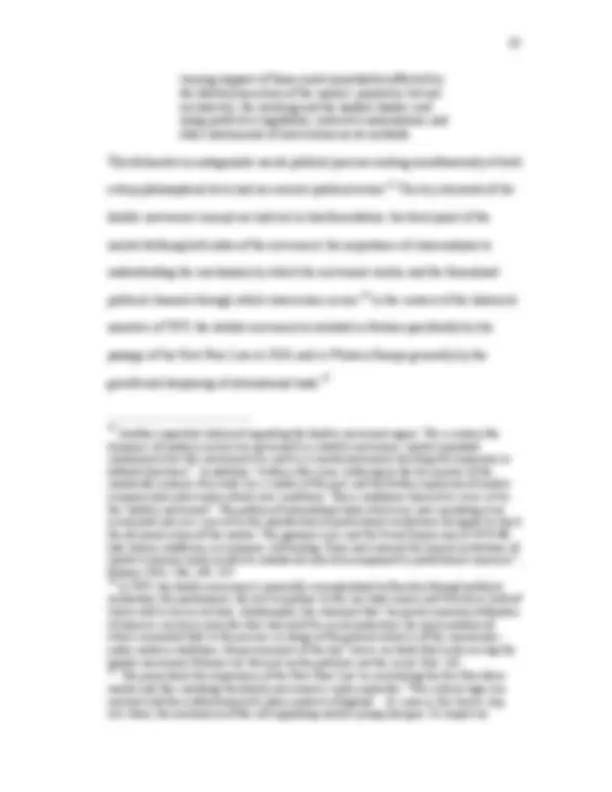
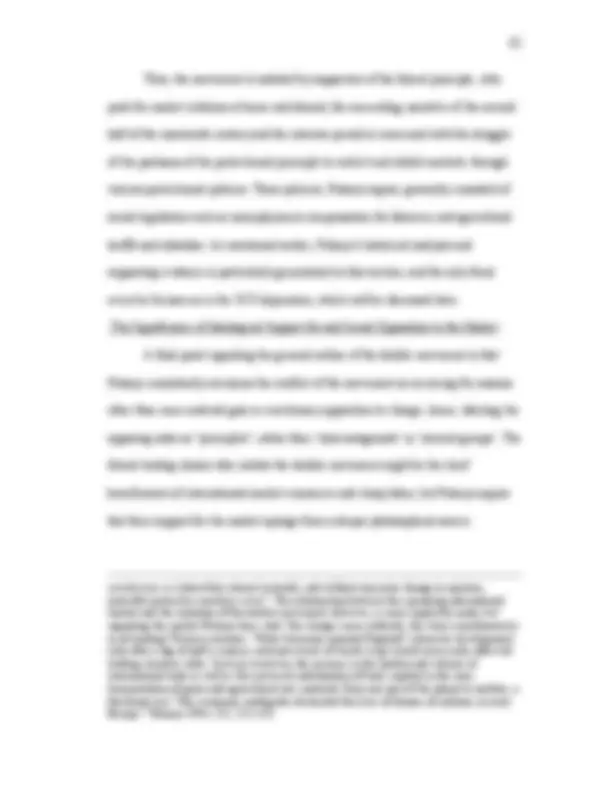
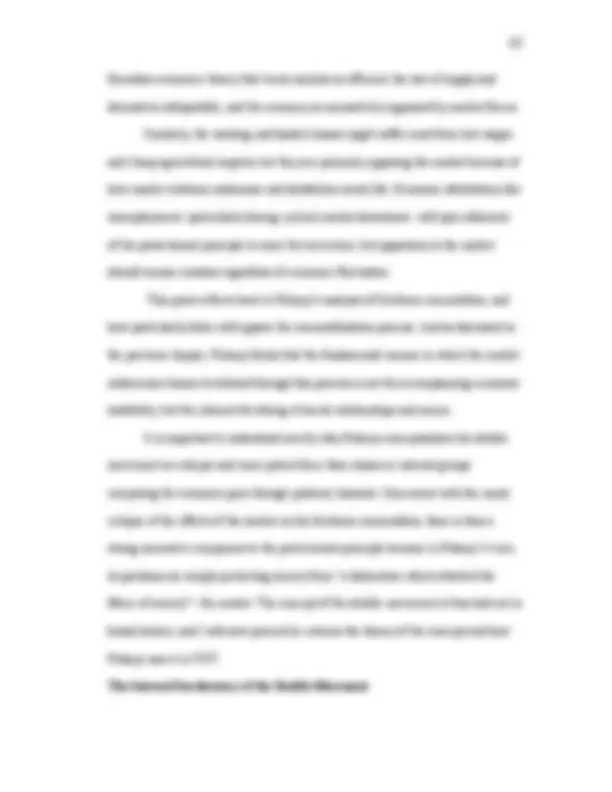
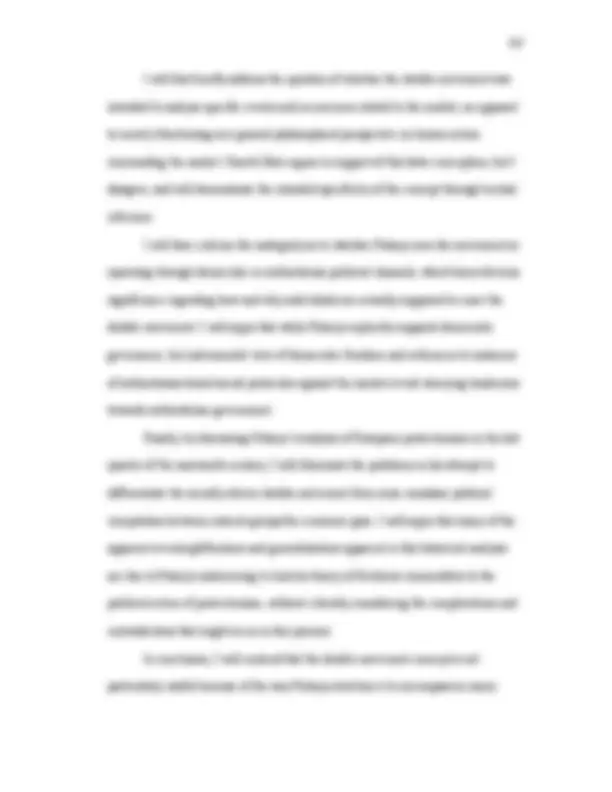
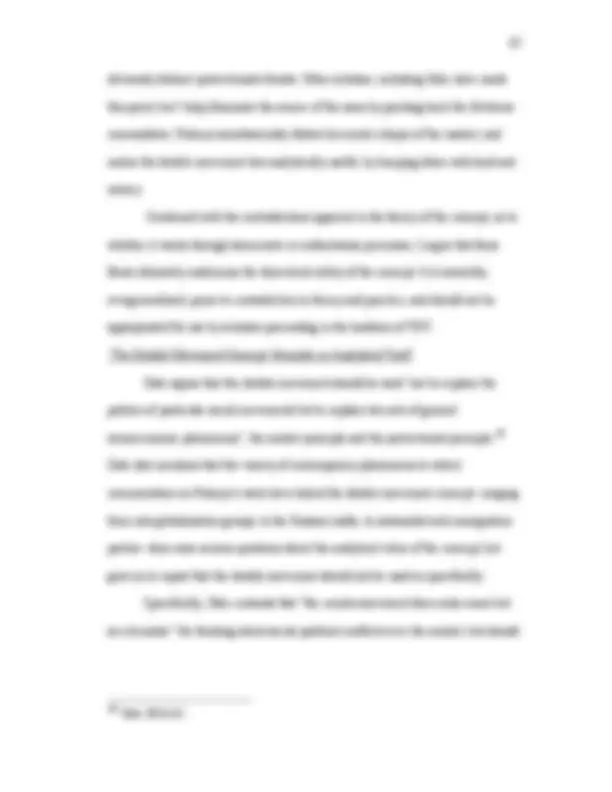
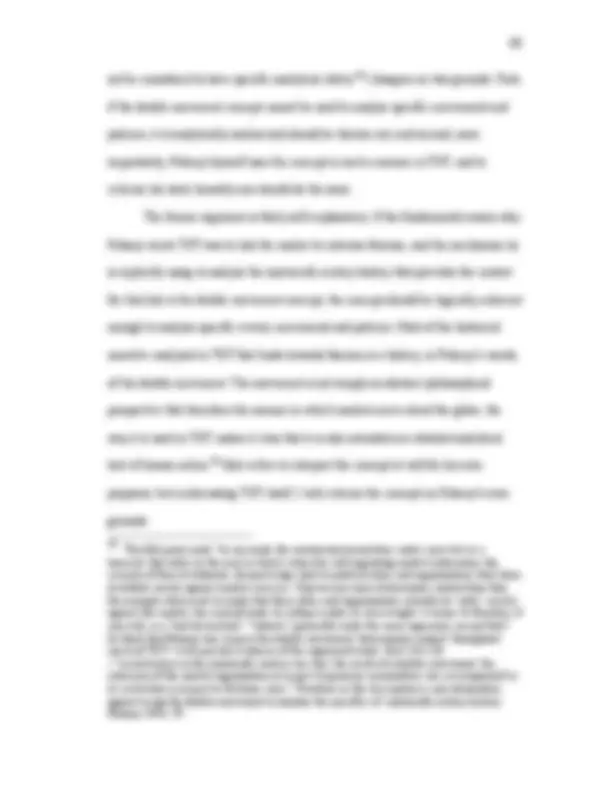
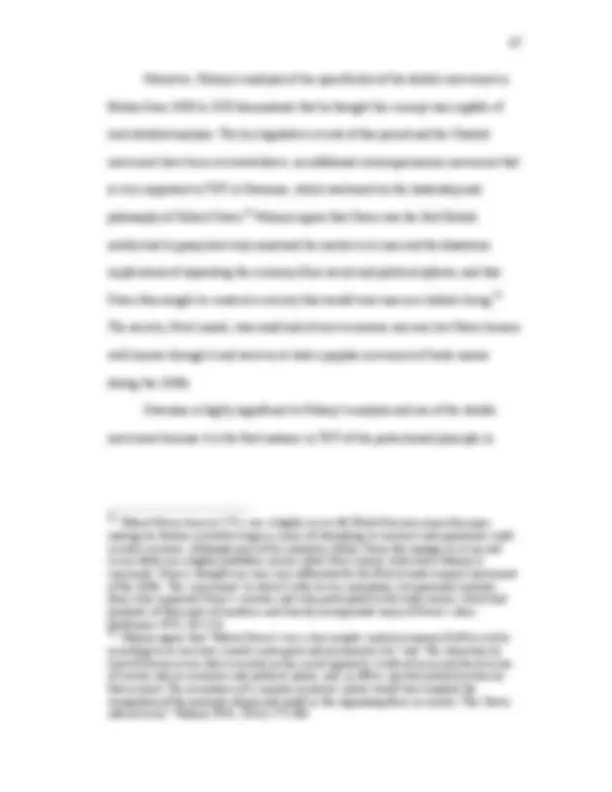
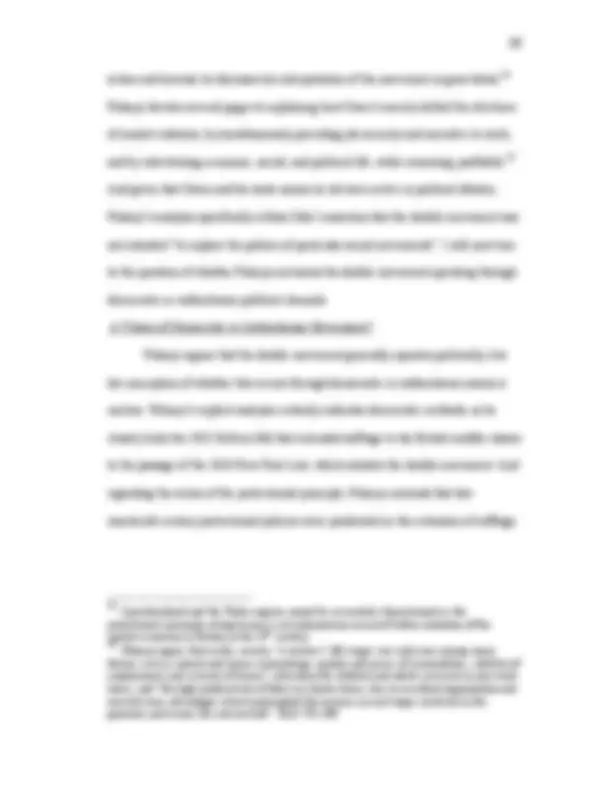
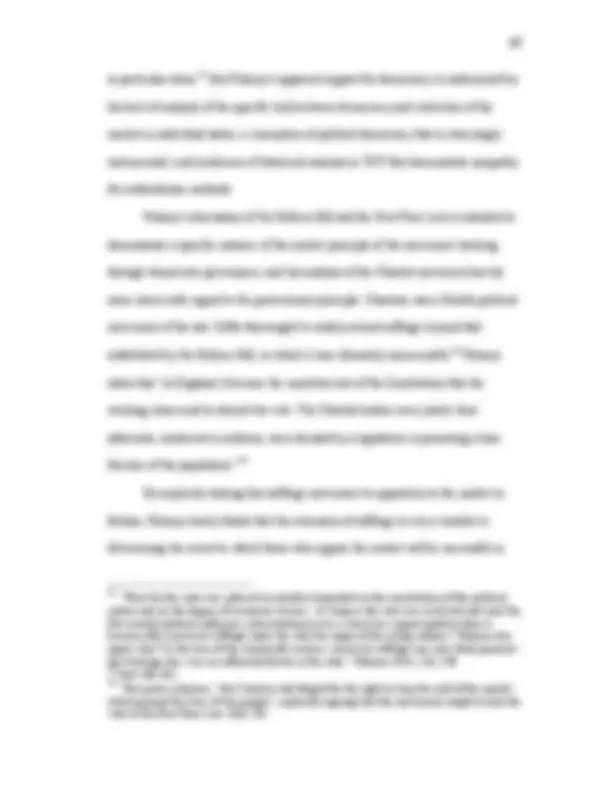
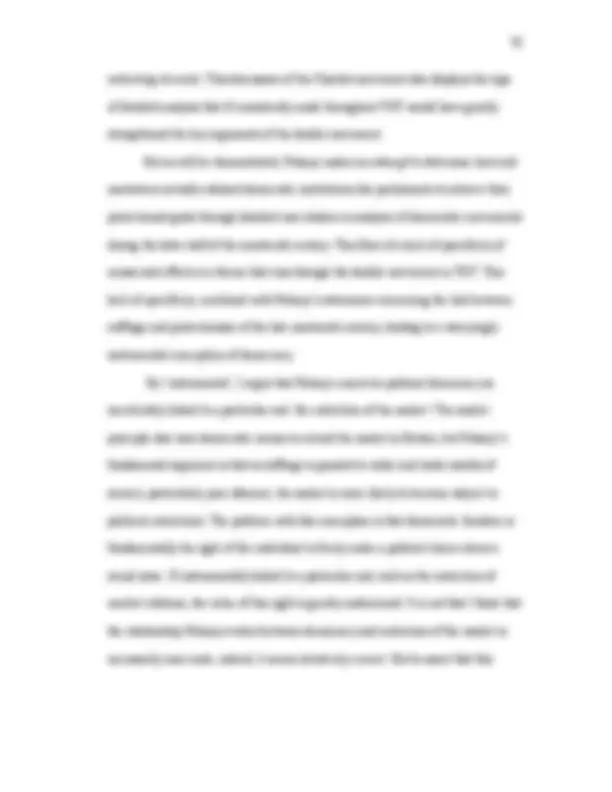
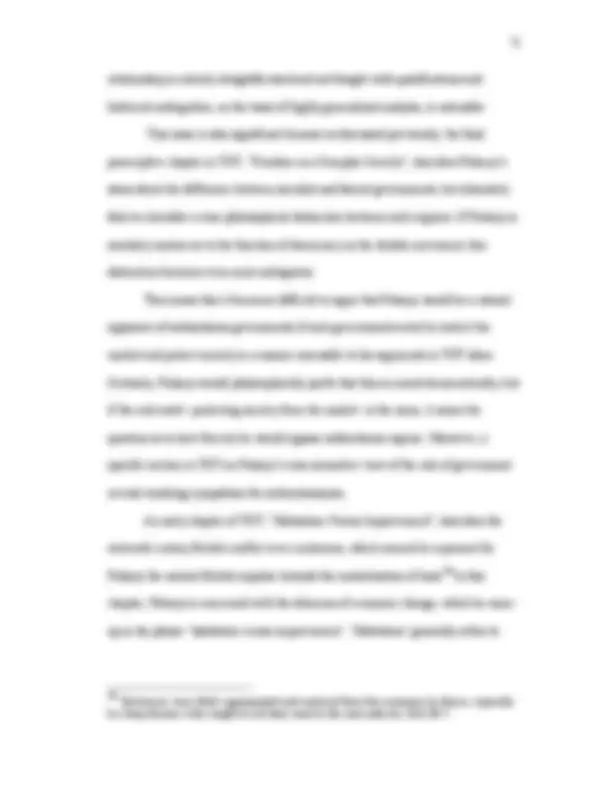
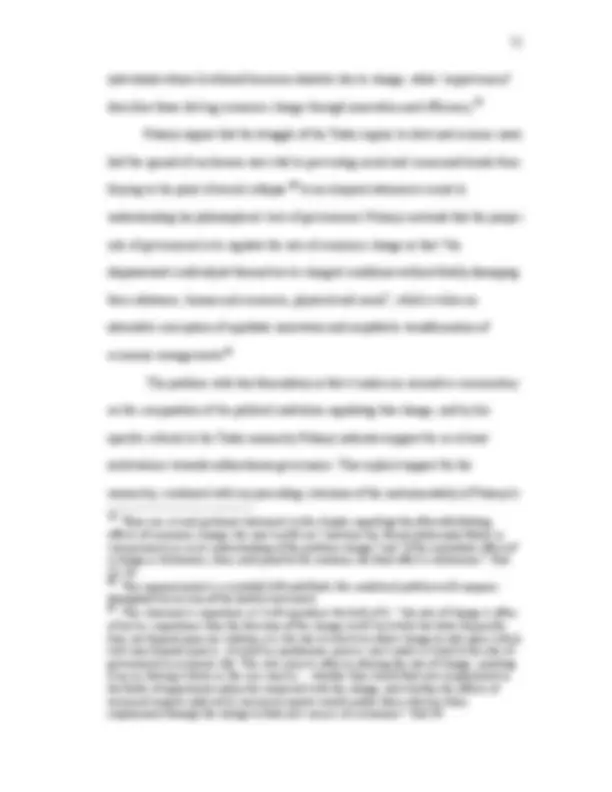
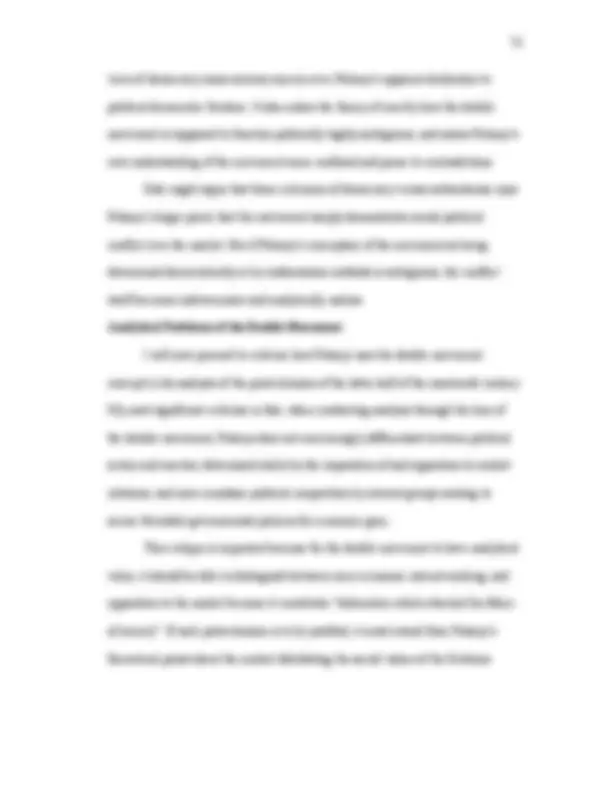
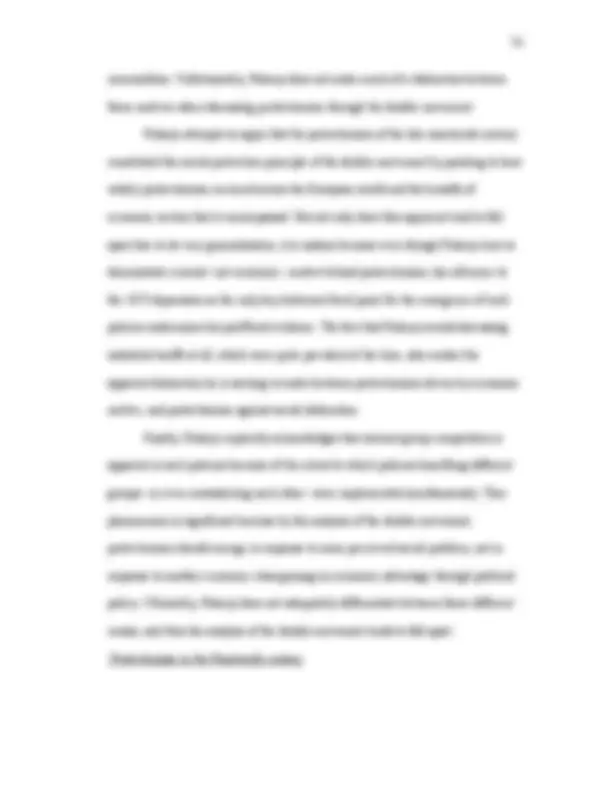
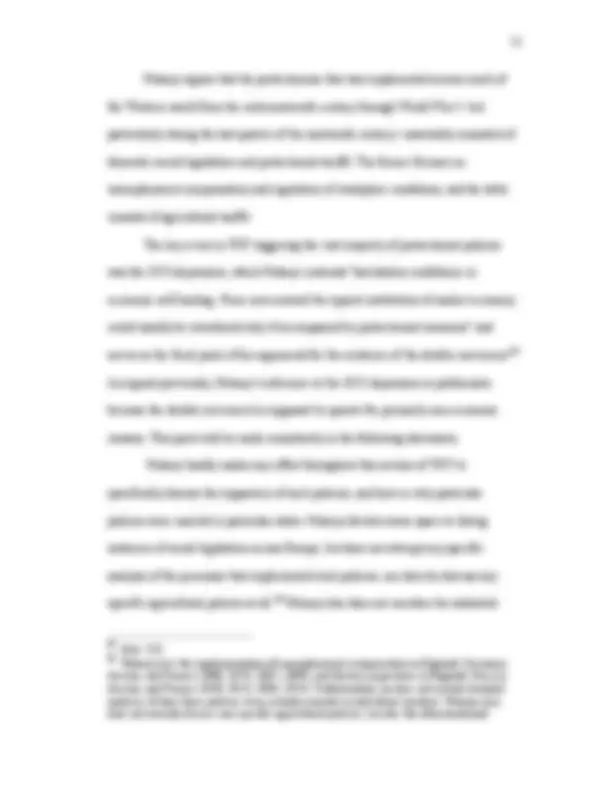
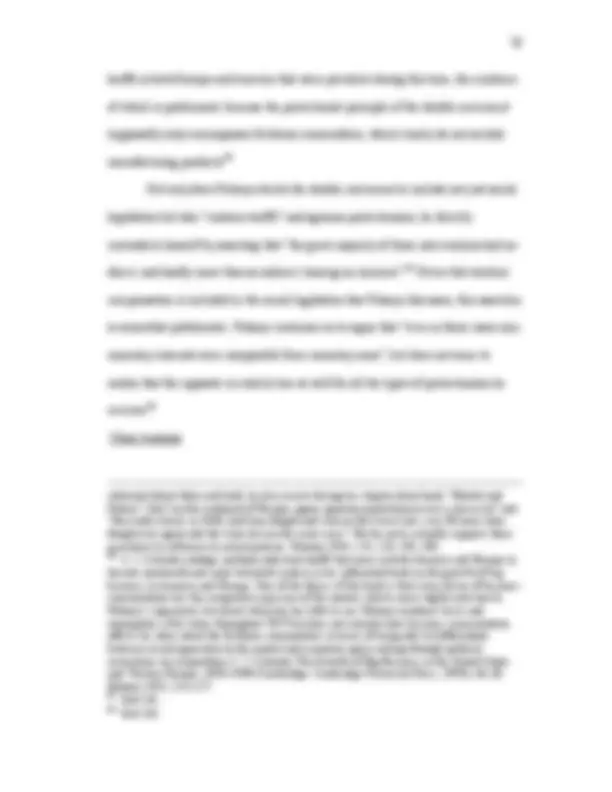
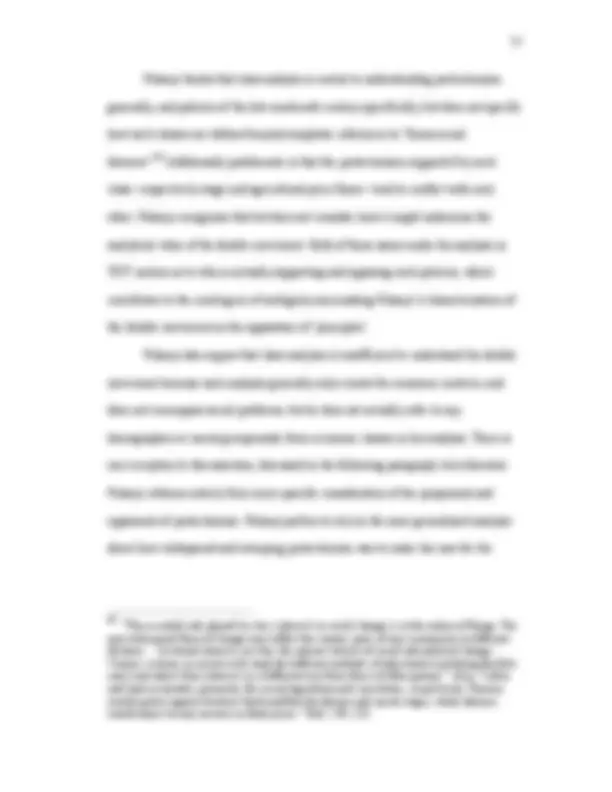
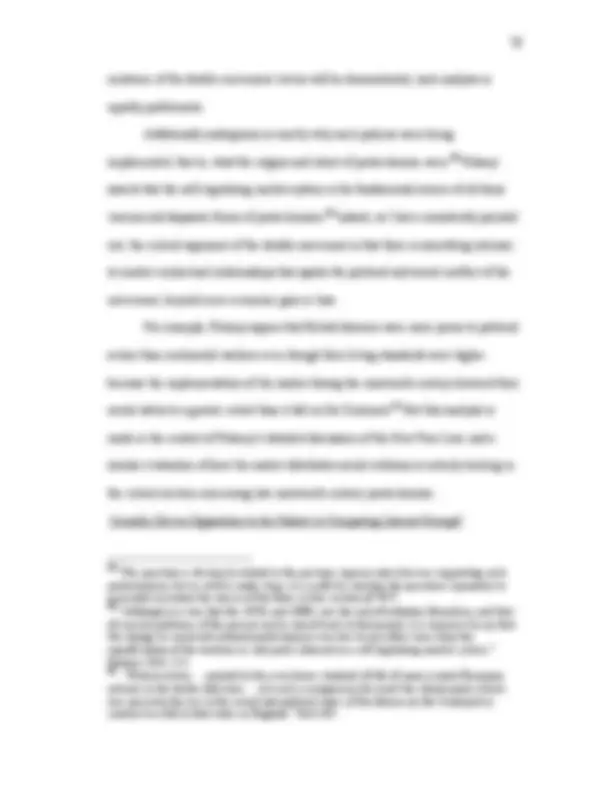
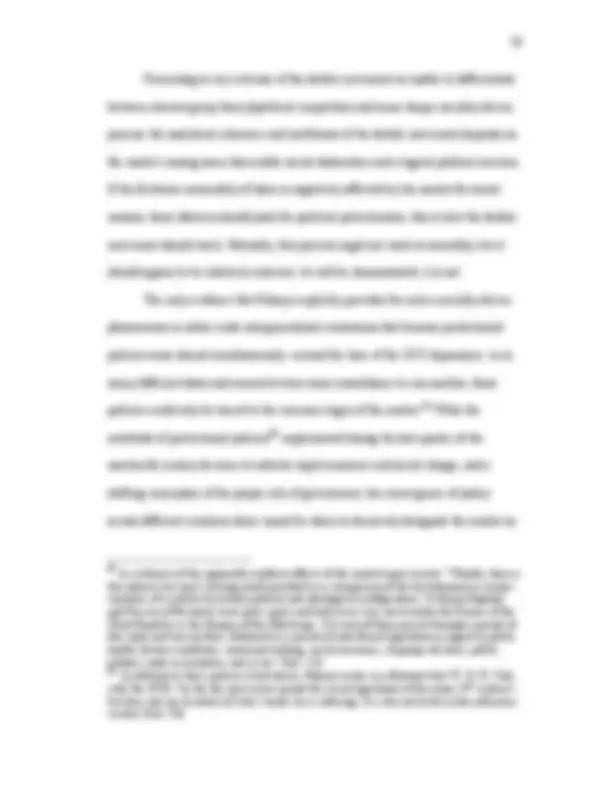
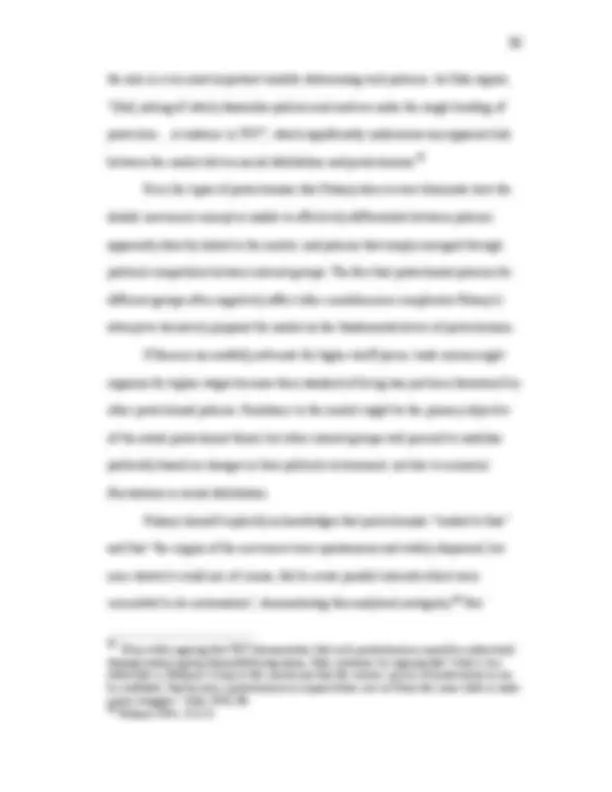
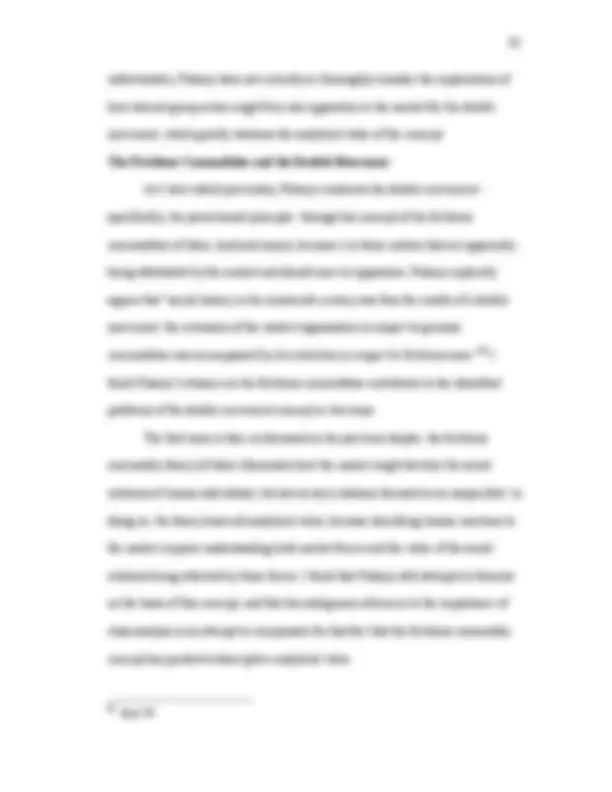
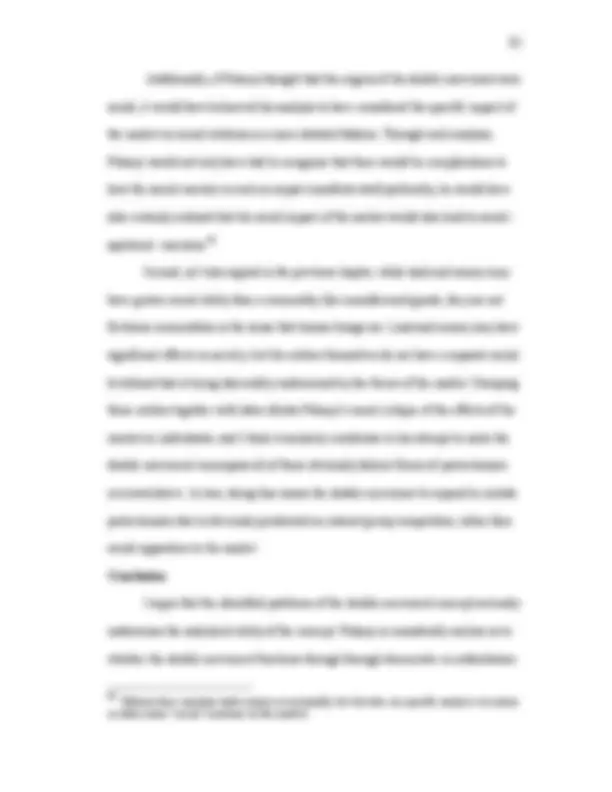
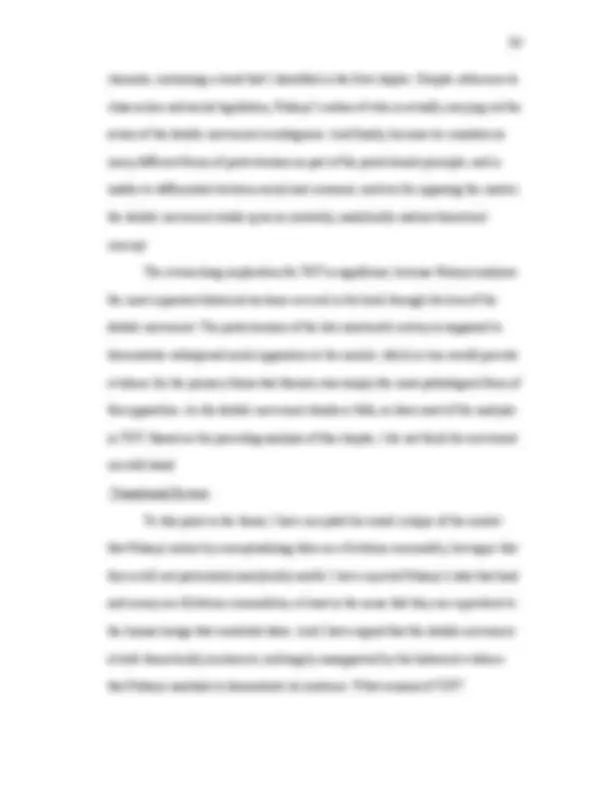
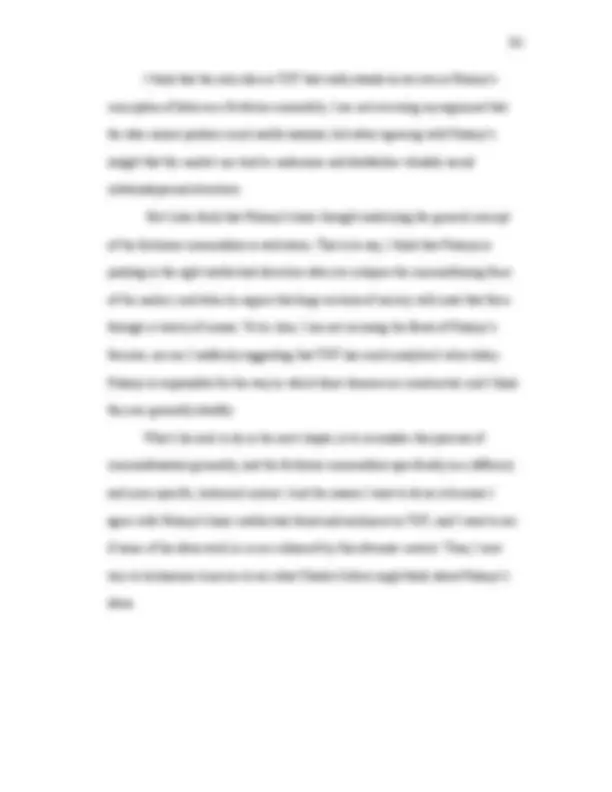
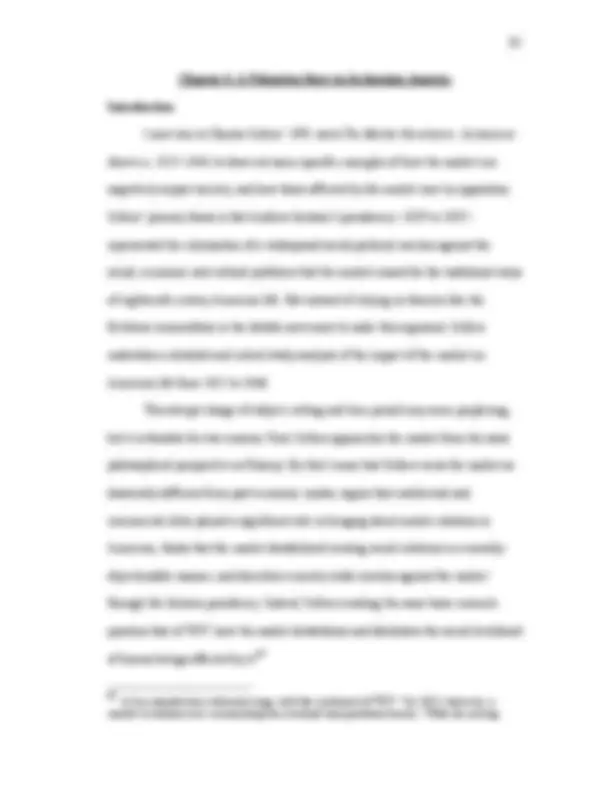
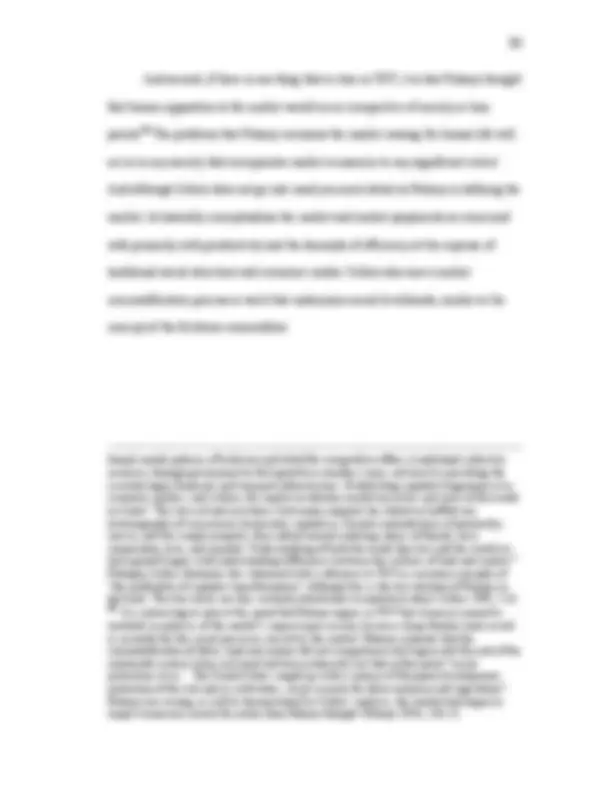
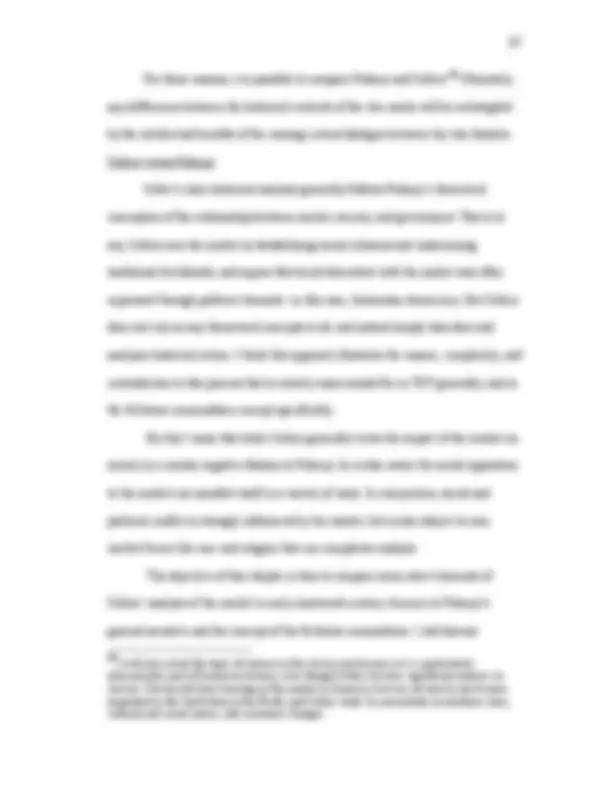
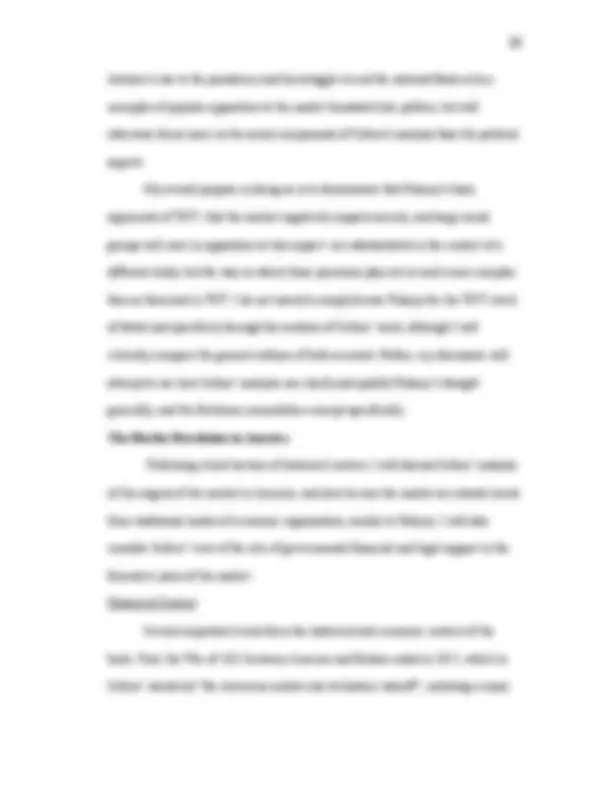
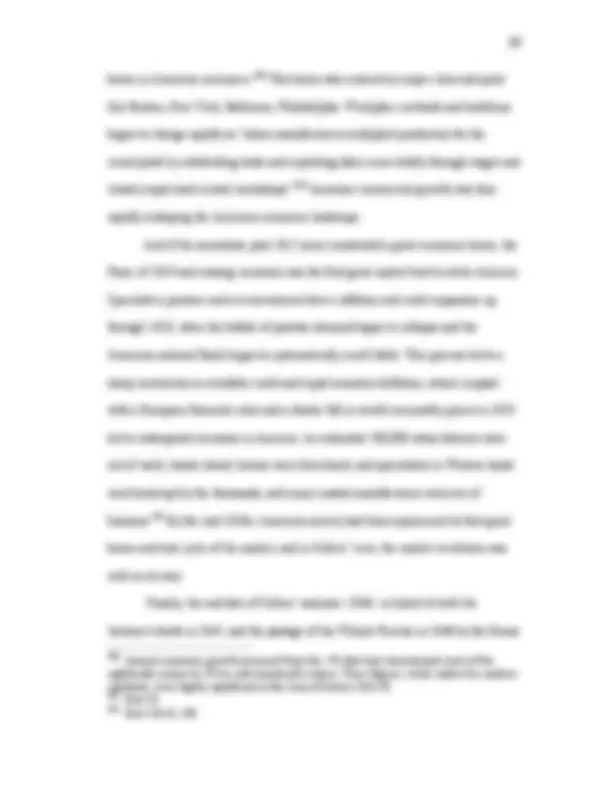
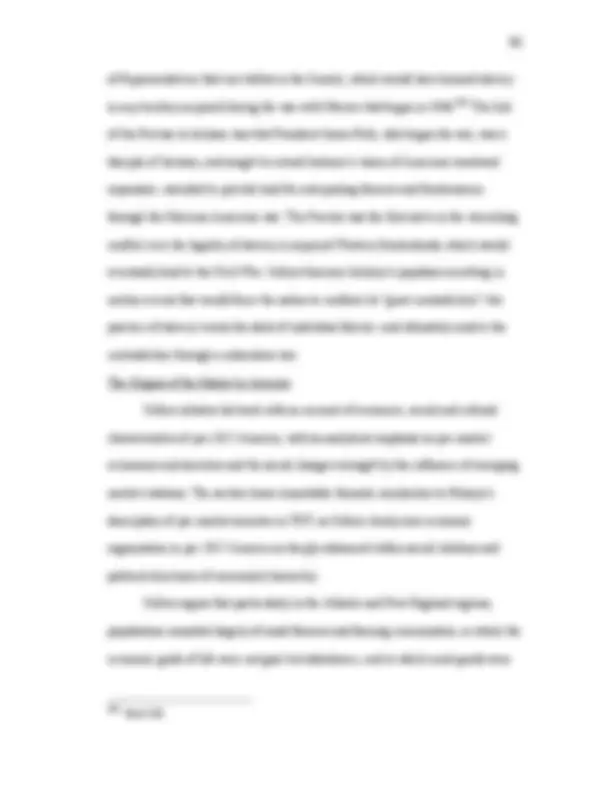
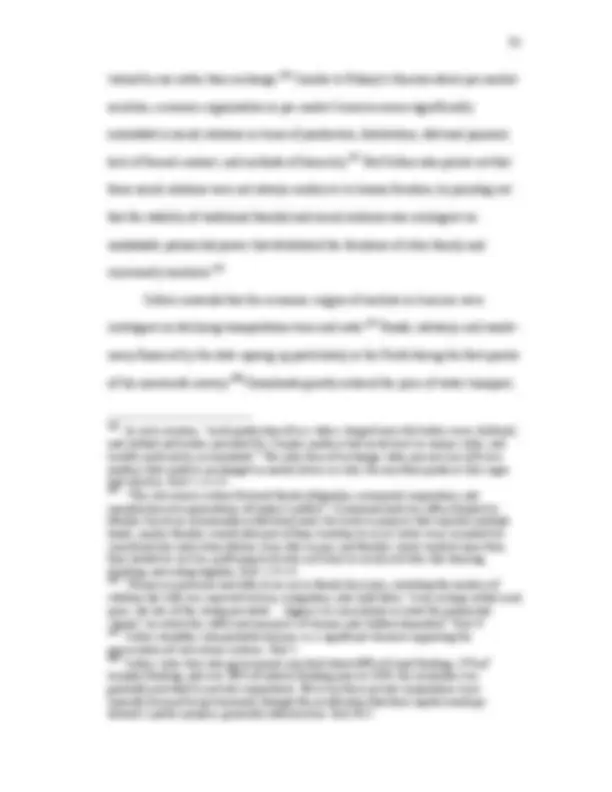
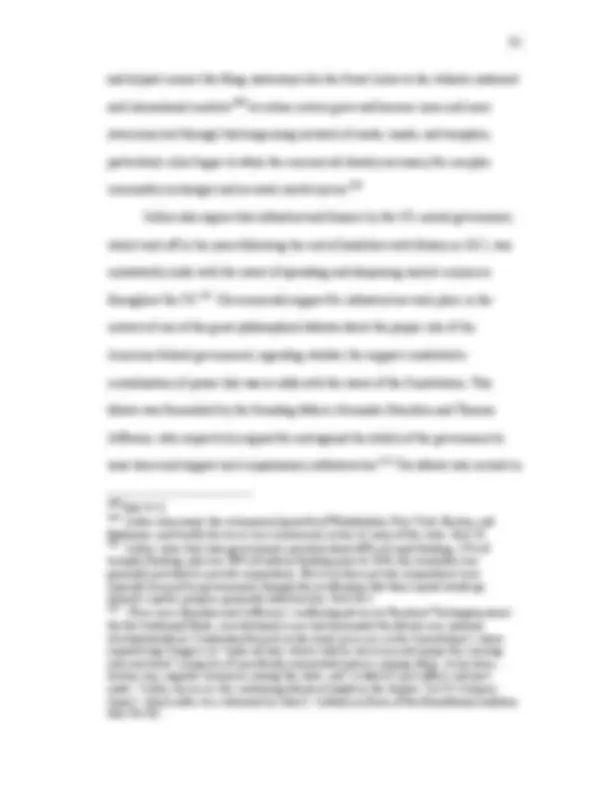
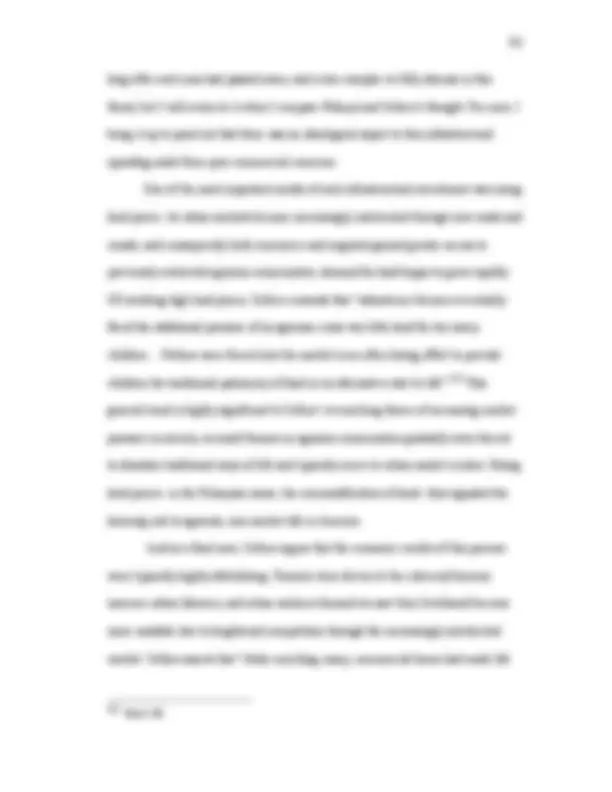
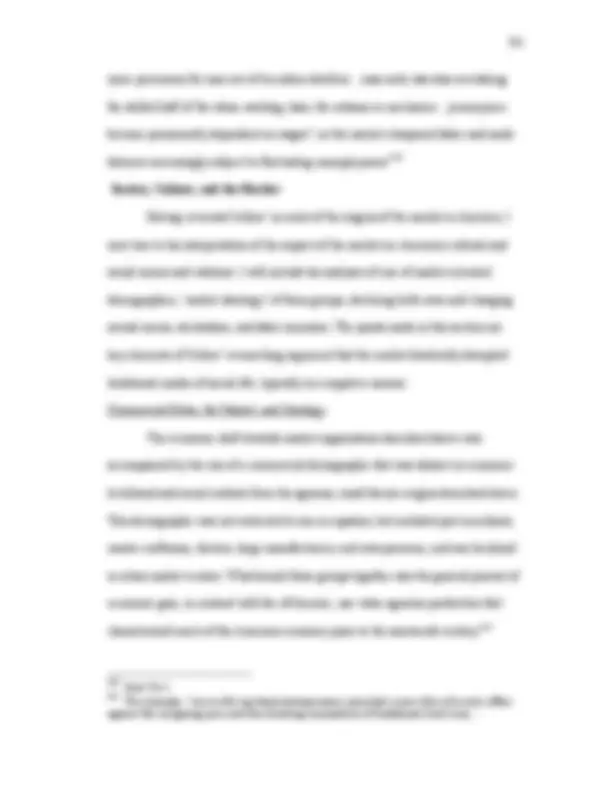
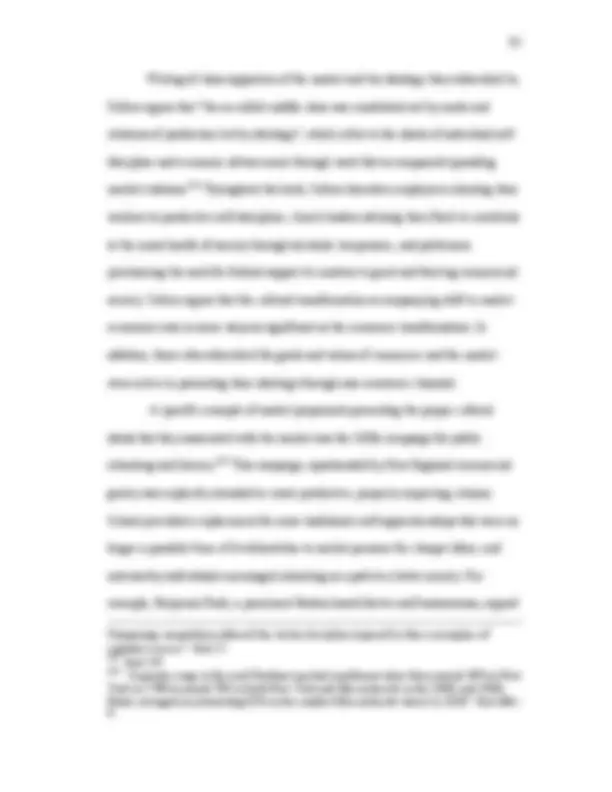
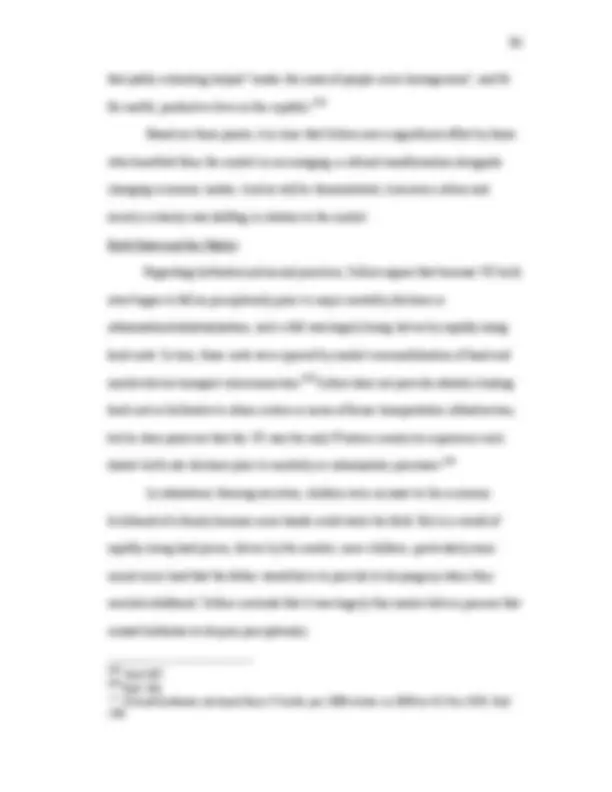
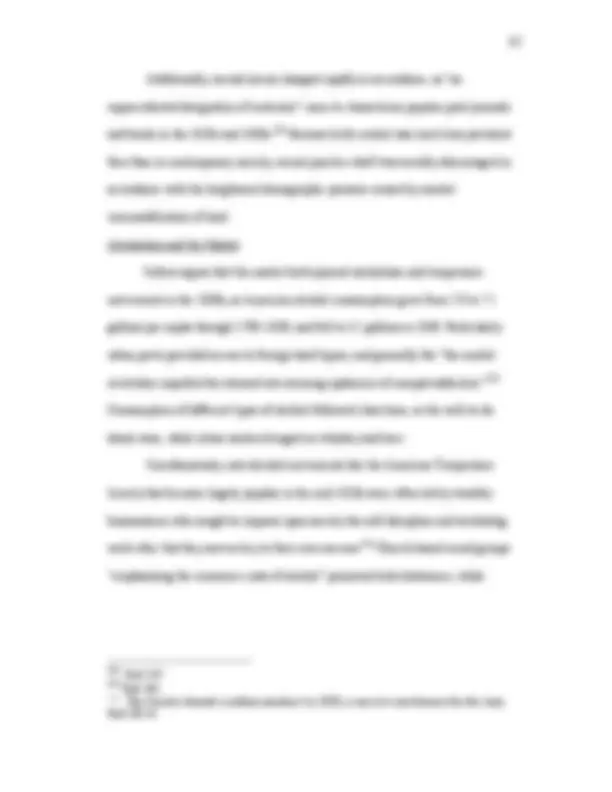
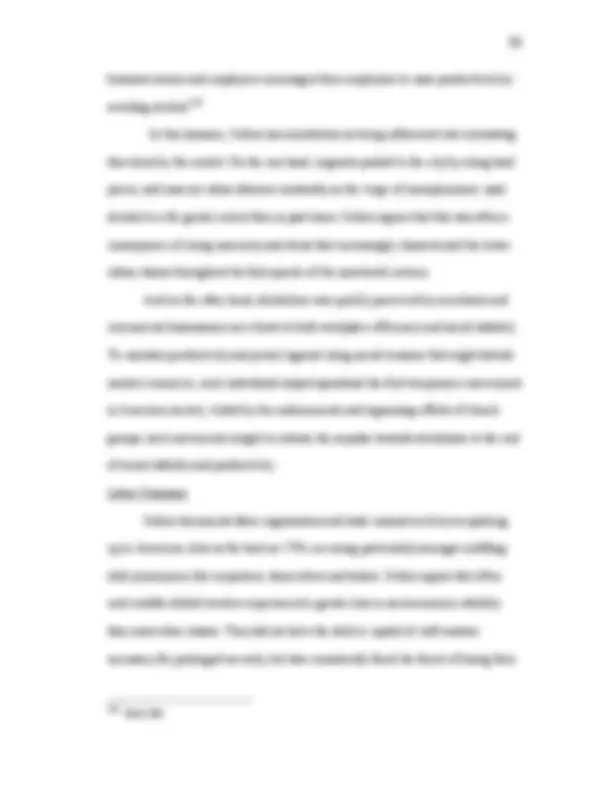
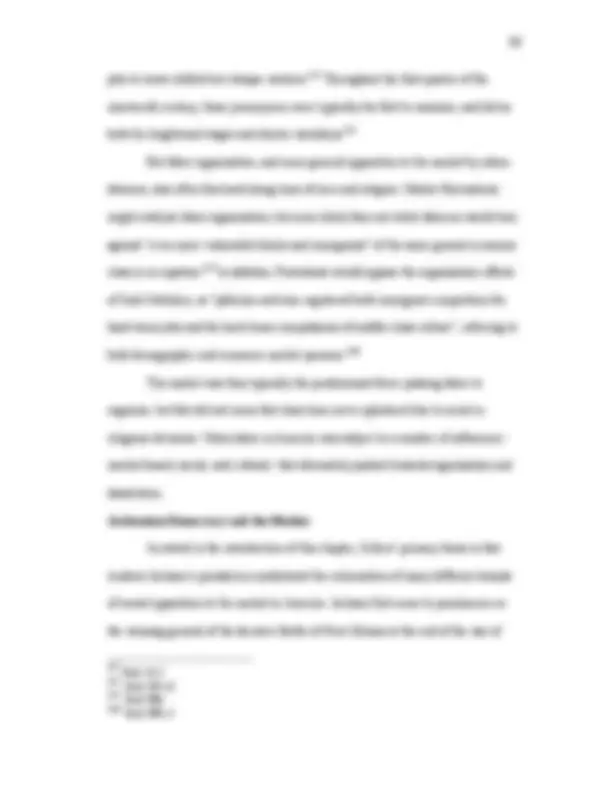
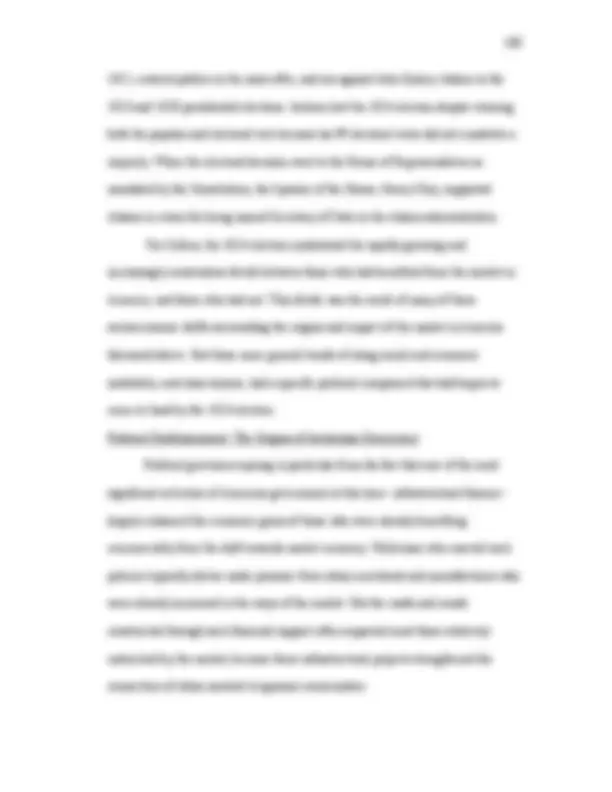


Study with the several resources on Docsity

Earn points by helping other students or get them with a premium plan


Prepare for your exams
Study with the several resources on Docsity

Earn points to download
Earn points by helping other students or get them with a premium plan
Community
Ask the community for help and clear up your study doubts
Discover the best universities in your country according to Docsity users
Free resources
Download our free guides on studying techniques, anxiety management strategies, and thesis advice from Docsity tutors
The great transformation in historical setting and intellectual context and fascism, socialism and the great transformation.
Typology: Study notes
1 / 115

This page cannot be seen from the preview
Don't miss anything!





























































































Wesleyan University The Honors College
A thesis (or essay) submitted to the faculty of Wesleyan University in partial fulfillment of the requirements for the Degree of Bachelor of Arts with Departmental Honors from the College of Social Studies Middletown, Connecticut April, 2012
Acknowledgements Through the thick and thin of this process, Richie Adelstein has been a fantastic thesis advisor. Richie told me two things at the outset of this thesis: that the process is largely an exercise of faith that something useful will come out at the end; and that I wouldn’t have much of an idea as to what that was until roughly two weeks before I turned it in. He was entirely right on both counts, and I’m not sure how I would have handled either situation if I had not had his words to return to from time to time. Richie, thank you for the faith. I would like to thank Don Moon for some occasional intellectual support, and for originally telling me to read The Great Transformation at the beginning of last summer. Little did I know that I would still be rereading it almost a year later. I would also like to thank Cecilia Miller for being a wonderful faculty advisor ever since sophomore year. You introduced me to CSS, and I have loved being here ever since. Thanks to my fellow CSS seniors–you guys generally rock. I have benefited from your friendships, and learned from your wisdom. I’m guessing now that most of you will change the world in one way or another. Also, Anike Arne will too (thanks for reading!). Thanks to the Wolfpack, my best friends since freshman year. You guys are stellar apartment-mates, particularly in dealing with me for last month, and better friends. Finally, Mom, Dad, Nat and Spencer- I love you.
market economy, and ranges in discussion from the economy of ancient China, to British intellectual history, to an in-depth analysis of the gold standard. Through this scope, the book variously grapples with ideas ranging from the role of ideology in political economy to the impact of globalization on state sovereignty. The story, while unconvincing in the final analysis, is fascinating, and seems to speak to a variety of scholarly fields. Second, it is a highly complex book, the analysis of which works at several different intellectual levels, and which simultaneously makes historical, moral, and theoretical claims. It has taken me quite some time to simply untangle how all these different levels interact throughout the book. It then took me more time to evaluate the extent to which these claims work. I ultimately think that they mostly do not. Third, after decades of obscurity, the book has fairly recently reemerged on the intellectual scene, in impressive fashion. Several scholars, particularly Fred Block, a sociologist at UCLA, have been consistently promoting it over the last few decades, and many more are appropriating the ideas and concepts of the book to analyze modern phenomena. My contribution to this nexus of Polanyian thought may be harsh, but hopefully will still be valuable in its honesty. And finally, regarding my own personal sentiments towards the book, Polanyi is asking a question that I am personally very concerned with. That question regards the relationship between society and the market, and as a proceeding inquiry, the role of government in sustaining a healthy relationship between the two. But more importantly, Polanyi provides an answer that is also close to my own intellectual heart: that the untrammeled market can have disastrous social
consequences for human beings irrespective of cyclical economic fluctuation, and that strong governance is necessary for society to protect itself against these effects. If my criticisms of the specifics of this answer constitute the majority of this thesis, it was my accord with the sentiment of this answer that drove me to stick with the book for so long. The Historical Setting and Intellectual Context In 1944, World War II was coming to an end, and intellectuals and policymakers across the globe were beginning to consider the possible nature and form of post-war political economy in the Western world. Besides the institutional changes to political governance and economic organization that had occurred during the war, such thinkers would have also reflected on the Great Depression and the appearance of European fascism during the interwar period. Because the Depression had likely removed all doubt in the minds of such individuals that the market was capable of drastically malfunctioning, the central question to be answered was the extent to which governments should be encouraged to interfere in the marketplace. This is not to suggest that the market, or economic theory grounding the market, was being abandoned. The US, Britain, and the other Allies aside from the socialist Soviet Union were fighting a war to preserve liberal democracy from the threat of fascism, and the right of the individual to basic economic liberty remained an unquestioned tenet of such liberal democratic governance. Basic economic liberty would at the very least have to include the ability to produce, sell, and buy goods in the market, even if certain types of goods and transactions might come to be restricted or regulated.
tendencies to negatively impact society and social cohesion. It is his view of this process that his normative ideas of political governance are built upon. I now turn to the book itself. The Author and the Book Karl Polanyi, a Hungarian anthropologist and economic historian, was deeply immersed in these sort of grand questions while working on a fellowship at Bennington College in America from 1941 to 1943, and was committed to making his own contribution to the intellectual framework that would formulate post-war political economy. And indeed he would, finishing his magnum opus, TGT , in 1944. TGT was one of a number of works published in the interwar and World War II years that had aspirations to provide a definitive answer to the debates of government, society and the market, the authors of which included Joseph Schumpeter and F. E. Hayek.^2 Polanyi’s answer was particularly idiosyncratic. Fascism, he argued, had in fact been a direct result of the free market, as it represented a deeply-rooted social rebellion against severe social and economic destitution caused by the market. In Polanyi’s view, fascism was the most pathological result of this rebellion, as wide swaths of society seemingly came to conclude that democracy was entirely inadequate for restraining market excesses, and that fascism was the only solution to the economic problems caused by the Depression. Polanyi did not in any way condone fascism or the results that fascist governments produced, but argued 2 Respectively, Capitalism, Socialism, and Democracy (1942) and The Road to Serfdom (1944).
passionately that the rebellion itself was justified because the market had constituted “a dislocation which attacked the fabric of society”. 3 Unfortunately, the book did not have nearly the impact upon either intellectual debates or policy formation that Polanyi had hoped it would, and faded into obscurity for several decades after the end of the war. The work was generally well-received amongst anthropologists and sociologists, but made no significant insights into mainstream micro or macroeconomic theory in such a way that might have been applicable to policy. Additionally, the fact that in the book Polanyi was strongly pro-socialist did not endear the work to American or Western European politicians and policymakers, who were busy reconstructing the foundations of free international trade while relations with the socialist Soviet Union were becoming increasingly hostile. Polanyi returned to anthropology, and taught at Columbia University. His work after the war would advance and modify some of the ideas presented in TGT, but he did not significantly revise or alter the book itself before his death in 1964. The Resurgence of TGT Nearly seven decades on since it was first published, TGT has been steadily rising in prominence since the mid-1980s. Polanyi had remained quite influential within the field of anthropology throughout his career, but it was with a pair of articles published respectively by John Ruggie in 1982^4 and Mark Granovetter in 3 This is an evocative phrase that I think captures Polanyi’s moral critique of market. I will continue to refer back to it throughout the thesis to remind us of Polanyi’s fundamental intent. Polanyi 1944, 136. 4 John Gerard Ruggie, “International Regimes, Transactions, and Change: Embedded Liberalism in the Postwar Economic Order”, International Organization , Vol. 36 No. 2, International Regimes (Spring 1982), 379–415.
accessible to fields as diverse as heterodox economic theory, Habermasian philosophy, and the varieties of capitalism school of sociology. 7 But if Polanyi’s ideas in TGT seem applicable to a variety of academic fields and intellectual perspectives, his arguments grounding these ideas must undergo due criticism if one is to ascertain the ultimate value of the book to such disparate subjects. Indeed, precisely because TGT has undergone such an ascent in prominence in recent decades, Block also argued in 2003 that “it is vitally important that Polanyi’s text be subjected to the kind of close, critical scrutiny that scholars normally direct at classical works”, before undertaking a useful analysis of the actual writing process of TGT.^8 Earlier in this introduction, I asserted that the arguments of TGT simultaneously work at the historical, moral, and theoretical levels. Most scholars who have previously reviewed TGT, including some in the footnotes above, have focused their criticism on the historical analysis of the book, along with some limited critiques of the theoretical components. Indeed, two of the initial reviewers of TGT (^7) Gareth Dale, Karl Polanyi: the Limits of The Market (Cambridge: Polity Press, 2010 ). Introduction. Dale provides a comprehensive and thorough account of Polanyi’s thought as it developed throughout the different stages of his academic career. While Dale devotes a specific section to TGT that admirably reviews many of the flaws and criticisms of the work, he ultimately does not question the validity or coherence of the book’s, which I do. I will argue that Dale does not push some criticisms far enough, and misses other problems altogether. 8 Block argues that the main source of confusion over Polanyi’s conception of embeddedness stems from Polanyi’s personal intellectual shift from standard Marxism to his own formulation of socialism while writing TGT. Polanyi’s thought was in a state of flux, as he began TGT in Britain and finished it in America, and was subject to different intellectual influences in each environment. Block’s point is thus interesting, but not particularly relevant to my thesis because I am criticizing TGT much more harshly than he did. Fred Block, “Karl Polanyi and the Writing of The Great Transformation (Theory and Society 32: 275–306, 2003).
leveled harsh critiques against some identified historical problems and the generality that characterizes much of the book. 9 My contribution to this ongoing debate as to the contemporary value of TGT is that I question all three of these analytical thrusts in the thesis. I thus plan to be able to comment authoritatively on the coherence and value of the book. But I do focus particularly on the moral and theoretical claims of the book, as these have survived largely intact up through today. As a final point before I proceed to the chapter structure of the thesis is that except for my final chapter, I will mostly base my critiques of these claims on the grounds of TGT itself. That is, I will not rely on external material, but will rather consider the internal coherency of Polanyi’s thought. The Structure of the Thesis In the first chapter , I review the historical narrative of TGT and relevant criticisms of this narrative that have proceeded this thesis. The narrative is sweeping and rather complex, and will require most of the chapter to lay out fully, but important for contextualizing my proceeding critiques of the book. I then consider Polanyi’s primary historical claim of the book, that the fascist governments that arose during the interwar period constituted a sweeping, society- wide popular reaction against the effects of the market. This claim has not been thoroughly criticized by past analyses of the book, and I argue that Polanyi does not convincingly support this claim. 9 J. H. Hexter, “The Great Transformation by Karl Polanyi”, The American Historical Review , Vol. 50, No. 3 (April 1945) 501-504. A. M. Sievers, Has Market Society Collapsed? A Critique of Karl Polanyi’s New Economics ( New York: Columbia University Press, 1949). Both authors still conclude that TGT is a brilliant work of social science. I will return to Hexter’s review in the first chapter.
argues the individuals that constitute these entities will rebel against the market commodification process. The concept of the fictitious commodities gets to the heart of Polanyi’s moral critique of the market, because Polanyi sees the worst effects of the market as primarily social, not economic. Certainly, social and economic processes of the market are intertwined, but Polanyi’s point is the market inherently devalues social relations because the theory of the market only accounts for the economic productivity of an individual. I will expand this point in the chapter. I argue that there are two problems with Polanyi’s idea of the fictitious commodities that have been unaccounted for by scholars in the past. First, while I think that conceptualizing labor as a fictitious commodity provides valuable insight into why and how the market can devalue and destabilize existing social relations, this perspective does not inquire into the actual nature of those relations. The problem is that if one is to attempt to predict or even describe specific reactions in opposition to the market, one must first understand the nature and value of the social structures that are being undermined to the individuals existing within them. And second, land and money may be distinct from ‘real’ produced commodities, but these entities are also qualitatively different from the human beings who constitute labor. Combining them with labor under a single analytical concept dilutes Polanyi’s moral critique of the impact of the market on individuals, and also contributes to the problems of the ‘double movement’ concept. In the third chapter , I analyze Polanyi’s concept of the double movement, which is the most famous theoretical idea of TGT. The double movement is comprised of two competing “principles” in society, which are locked in conflict over
the market. The “market principle” represents those who support the market mode of economy, and the “protectionist principle” is constituted by individuals whose livelihood is undermined by the market, and who thus oppose it. In Polanyi’s view, the double movement is the driving force behind the decisive historical action of the nineteenth century, and its coherence and analytical usefulness is thus critical to the overall value of TGT. The historical evidence that Polanyi relies on to demonstrate the existence of the movement is oversimplified and highly generalized, but rather than simply pointing to historiographical issues, I critique the internal coherence and analytical value of the concept itself. I argue that Polanyi is consistently unclear throughout TGT as to whether the movement is supposed to work through democratic or authoritarian methods. In addition, I contend that the concept ultimately fails to distinguish between opposition to the negative impact of the market on social relations, and political competition between interest groups for economic gain. I then posit that the problems with the double movement are largely due to the previously-identified issues with the fictitious commodities concept, because the double movement is constructed upon the theory of the fictitious commodities. Finally, I conclude the chapter with a brief review of my criticisms of TGT to that point, and whether I think there is any value to Polanyi’s ideas. I argue that while I think there is little analytical value to the concepts that I have criticized, in terms of being able to predict or specifically described human action, I still agree with Polanyi’s basic argumentative thrust underlying TGT that the commodifying force of the market can have serious negative effects on society.
the debate of society and the market in some startlingly new or incisively creative direction, as Polanyi attempts to do in TGT. But while I hope that I might have the opportunity to attempt such an endeavor in the future, and will certainly rely heavily on what I have learned through this experience to carry out such a task, I do think that the type of work I conduct in this thesis is valuable. In the territory of a work like TGT, we are dealing with large questions and weighty answers. These answers, and the theoretical ideas that accompany them, must be subjected to proper scrutiny if they are to be useful in the future. Conducting such a critical look with the goal of honestly contributing to current debates is thus the fundamental intent of this thesis.
Chapter 1: Fascism, Socialism and ‘The Great Transformation’ Introduction The intent of TGT, as laid out by Polanyi in the opening chapter, “The Hundred Years’ Peace”, is to unearth the origins and causes of the rise of fascism in Western Europe during the interwar period of the twentieth century. The phrase ‘the great transformation’ itself refers to the shift from liberal democratic to fascist governance that occurred during this time period. Polanyi thought that the market– meaning both actual markets and the classical economic theory grounding such markets– was the decisive factor operating through the nineteenth century that eventually led to the rise of fascism. In conjunction, Polanyi saw the market in the nineteenth century as representing a drastic break from the structure of economic organization characteristic of most pre-nineteenth century societies. In such societies, Polanyi argues, economic relations are significantly influenced by and often subordinate to social relationships and political structures; the term he uses to describe the socioeconomic situation is ‘embeddedness’, or that the economy is ‘embedded’ in society. In Polanyi’s view, however, the market organizing system tends to do the opposite- ‘disembed’ the economy from society, or subordinate social and political structures to the imperatives of the market. The purpose of this chapter is to critically examine the historical narrative and analysis of TGT, which I divide into four sections: pre-nineteenth century societies, Britain from 1800 to 1850, Western Europe from 1850 to 1914, and the interwar period. I will devote particular attention to the interwar period because this
contend that economic production and distribution are subsumed within and to an extent directed by social and political relationships. There are few important events in the section, as Polanyi argues that markets became central to economic life only in the first half of the nineteenth century in Britain. But it is important to understand Polanyi’s arguments in favor of the influence of social and political relations upon the economy, as these ideas form the foundation of TGT. Polanyi thought that the organization of economic production, distribution and consumption in most societies prior to the nineteenth century was always strongly influenced by social and political relationships otherwise unrelated to a community’s material livelihood.^12 This means that individual economic production– be it crops, animals or crafts– typically went to serve consumption needs that were determined socially or politically. Social needs included sustenance of the family, community and tribe; particularly communal and tribal needs would be identified and provided for by figures of political authority, such as tribal leaders or kings. 13 The intertwining of economic production with social and political goals signified for Polanyi that the (^12) “The outstanding discovery of recent historical and anthropological research is that man’s economy, as a rule, is submerged in his social relationships. He does not act so as to safeguard his individual interest in the possession of material goods; he acts so as to safeguard his social standing, his social claims, his social assets. He values material goods only insofar as they serve this end. Neither the process of production nor that of distribution is linked to specific economic interests attached to the possession of goods; but every single step in that process is geared to a number of social interests which eventually ensure that the required step be taken. These interests will be very different in a small hunting or fishing community from those in a vast despotic society, but in either case the economic system will be run on non-economic motives.” Ibid 48. 13 Polanyi labels these distributive systems as reciprocity, house holding and redistribution. Reciprocity refers to economic distribution based on kinship and familial ties, as family members provide for each other with little regard to material self-improvement. Householding, an Aristotelian concept, is closely tied to reciprocity, and comprises production for household use and general subsistence. And by redistribution, Polanyi describes the political act of appropriating produced economic goods and the subsequent distribution amongst a community by a political leader, such as a tribal head or town squire. Ibid 45-58.
economic sphere of a society was strongly embedded in established familial, cultural and social relationships. Given these influences upon production and distribution, Polanyi also argued that the idea of individual economic gain was almost completely absent from such economic systems. Polanyi contended that the concept of economic production for individual gain was foreign to and often taboo for pre-market societies, largely because such a goal could be seen as counterproductive to the survival of a particular tribal community as a whole.^14 Obviously, societies and individual political leaders might seek to enhance their own material wealth through political means, but Polanyi would contend that this method of political self-aggrandizement was qualitatively distinct from that of pure economic gain. Polanyi seems to view the mercantile theory of economy as providing a social transition point through which individual economic gain became more socially acceptable in centuries prior to the nineteenth century, but otherwise leaves this transition generally unspecified. The final point to be made regarding this section is that not only did Polanyi see these non-economic relationships as having great influence upon production and distribution, he also argued that such relationships are valuable to the individuals of a particular society. This argument is obviously more controversial than simply positing the existence of such relationships: while one might contend that family members might happily or at least willingly donate food or goods to each other 14 If individual gain might threaten communal survival in any way, particularly by undermining relations of reciprocity, house holding, and redistribution, “such a situation must exert a continuous pressure on the individual to eliminate economic self-interest from his consciousness to the point of making him unable, in many cases (but by no means in all), even to comprehend the implications of his own actions in terms of such an interest”. Ibid 48-